ISSUE 170 MARCH 2024


ISSUE 170 MARCH 2024

Breaking barriers: Inclusive social mobility for all
Equalising access to graduate opportunities
Using the APP to collaboratively tackle progression challenges




Phoenix is the digital journal of AGCAS, the Association of Graduate Careers Advisory Services It is published three times a year
To find out more about AGCAS, see www.agcas.org.uk
Created in-house by AGCAS, based on an original design by Marcom www.mar-com.net
Rish Baruah
University of Stirling
Sarah Brown
Bath Spa University
Wendy Browne
University College London
Holly Delafield
University of Bristol
Lisa McWilliams
Keele University
Claire Merriman
Aston University
Louise Ogle
Royal Holloway, University of London
Nathan Olsen
Queen Mary, University of London
Craig Reoch
University of Dundee
Sara Tsompanidi
University of Edinburgh
Nicola Varley
Nottingham Trent University
Participation rates in higher education are growing and the demographic profile of the student population is continuing to diversify, as more students from underrepresented groups choose a university degree for their next steps, despite the significant financial burden associated with it A big reason for this is the success of widening participation and outreach programmes, which for over 25 years now have sought to increase aspirations of young people to access and reap the rewards of a higher education However, whilst we have seen a positive increase in the diversity of students entering HE, there are still significant gaps in attainment and outcomes across the sector that potentially prevent these graduates from achieving the social mobility promised to them In such an environment, it is critical for universities to take seriously their mantle of responsibility in empowering students with the confidence and capability to effectively navigate their lives and careers after university
Having spent my early career in HE teaching, researching and working primarily with students from underrepresented groups, it quickly became clear to me that the ‘traditional’ ways of doing employability development, as an extracurricular undertaking, are fundamentally flawed This is especially the case when considering that these students often have a myriad of priorities, such as caring and financial responsibilities, that must take precedence before their studies and leave them time-poor As such, they become strategic learners who direct their limited energies towards the compulsory aspects of university life, which will have the most direct impact on their educational outcomes
To combat this, I contend that universities must fundamentally rethink the purpose of a higher education and approach curriculum design differently so that employability development becomes a central aspect of subject teaching. The core curriculum should enable students to develop the knowledge, skills, and experiences for lifelong success, which is then further enhanced through the extracurricular offering - and this has been the focus of my professional practice However, despite the external drivers for substantive work in this area (e g the Access and Participation Plan in England) in addition to the ethical case, there are a number of challenges to such a reconceptualisation of university education As such, providers across the UK have taken a range of approaches, both large and small-scale, to supporting students to achieve both their personal aspirations and society’s expectations of social mobility
This edition of Phoenix, returning to the theme of social mobility after a six-year period which has brought widespread policy change and increasing societal inequalities, outlines a wide range of impactful activities taking place in careers service across the UK Our authors outline the strategies they have taken, sharing objectives, methods, outcomes, and lessons learned, so that those reading can become inspired and learn from the wider AGCAS community, as they continue to proceed in this important area of work
In this issue, read about award-winning programmes targeting specific student groups, social mobility projects embedded in the curriculum, and data-led initiatives which have led to better collaborative working, and careers service positioning, across institutions We have articles about national projects in Scotland and Wales, benefitting thousands of students and graduates and allowing them to bring their talents to varied workplaces There are also examples of careers services who have fundamentally changed their approach to social mobility and inclusive practices to ensure they understand the needs of their specific cohorts and are providing support that can reach all students.
We are pleased to feature articles from The Sutton Trust, who have shared insights into the key role universities play in ensuring equal access to graduate opportunities, as well as NAGCAS (AGCAS’s Australian counterpart) who have outlined the recently published Australian Universities Accord and reflected on the employer role in Australia’s social mobility agenda Don’t miss reflections from AGCAS on twenty years of the What Happens Next? research series, plus a response to the Advance HE Framework for Embedding Employability from Gemma Kenyon, AGCAS Integrating Employability Director
There is no silver bullet for social mobility work and it is necessarily ongoing, as the make-up of our society and the world we live in continues to evolve What the diverse range of approaches shared in this edition highlight is that the solutions we pursue must be tailored to our different institutional and student contexts for them to be effective. Therefore, it is essential for careers services to work collaboratively with teams and strategic agendas across the university to achieve long-lasting positive change
Next steps
The AGCAS Social Mobility, Widening Participation and Regional Inequality Working Party brings together colleagues from across the AGCAS membership and from a range of institutional contexts to look at this area. For the next 18 months our focus will be on two primary areas:
Impact and Evaluation: exploring how careers services can better evaluate the impact of their work so as to monitor progress and success against KPIs as well as feed into institutional conversations e g in relation to the Access and Participation Plans (APP), Teaching Excellence Framework (TEF), and Knowledge Exchange Framework (KEF).
Employer Engagement: taking the learning from university widening participation activities to work with graduate recruitment and early career talent teams to cultivate and establish inclusive recruitment, transition and progression strategies to support diverse talent into and through their organisations
Whilst colleagues in the Working Party are leading on these areas, we will need the contributions of colleagues across the AGCAS membership to progress these and we will keep you posted over the coming months In the meantime, enjoy this edition of PhoenixI hope that it rejuvenates and strengthens you in persisting with this important work moving forward

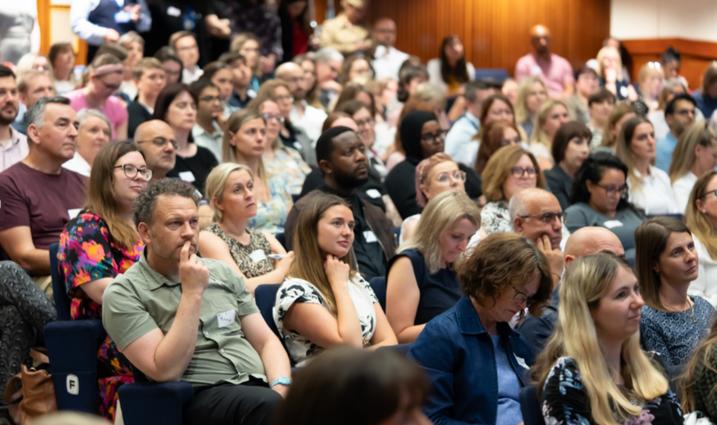

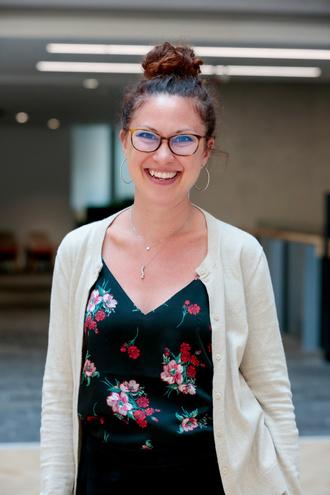



ALYSSA MARTIN, CHRISTINE ZARB and ZURRIA QURESHI from University of Westminster’s Alumni Relations Team and Careers and Employability Service explore how three distinct programmes achieve a shared goal of offering professional experiences to students from underrepresented backgrounds Placing accessibility at the heart of each, these initiatives have been highly recognised in the sector for offering outstanding student support, and by the students themselves for the impact on their employability skills
As the first polytechnic in London, the University of Westminster has long been known for helping students from a wide variety of backgrounds to reach their potential Today, we are recognised as one of the most internationally diverse universities in the UK by the Hotcourses Diversity Index
This diversity is also reflected in our home student population. In 2021, the University of Westminster ranked second in England for social mobility – rated by the proportion of students receiving free school meals who have gone on to be amongst the top 20% of earners by the age of 30.
We can see the strengths, innovation and ambition of our students, as well as the challenges they face, which can impact the time they can devote to extra-curricular employability activities. Professional networks and knowledge of the breadth of roles available to graduates may be limited, resulting in difficulties with career decision making To address some of these challenges and level the playing field, the Careers and Employability Service and Alumni Relations Team at Westminster have launched three distinct initiatives with one shared goal: making employability accessible
Future Ready Mentoring at Westminster offers three branches of mentoring activity: long or short-term one-to-one mentoring or incurriculum group mentoring Since 2017, over 5000 students and recent graduates have received one-to-one support from a career mentor In 2021, Group Mentoring was piloted as an innovative way to integrate mentoring into the curriculum, targeting courses where students needed extra support to progress into highly skilled employment, according to Graduate Outcomes 2018/19 findings
To date, this has benefited an additional 1800 students who might not otherwise engage with mentoring and those who have no or limited connections to alumni and external professionals. By offering three flexible options, all students can gain advice from a mentor at any point in their studies, helping them to reflect on experiences and plan their career journey.
To make our initiatives accessible, we have streamlined applications and addressed financial barriers
Westminster Working Cultures (WWC) is a university-wide initiative designed to enhance student employability through utilising the support of our global network of alumni and partners Sessions involve role models sharing their professional journeys and challenges they’ve faced Students, many of whom come from underrepresented and disadvantaged backgrounds, are required to actively reflect on their experiences. With two different strands, there is an offering to suit all. WWC International provides fully funded week-long international opportunities for 160 students annually across eight global destinations. WWC UK offers students an intensive five-day professional programme with a blend of inperson and virtual sessions in London and a day trip to a major UK city outside London Three programmes run annually supporting at least 150 students
The Careers and Employability Service’s Inclusive Futures: Insights (IFI) programme delivers at a smaller scale but with specific targeted interventions Growing over recent years, this initiative now offers 40 places to students from backgrounds underrepresented in higher education and/or the graduate labour market Once onboarded, students are accompanied on a series of Insight Sessions at a range of employer premises, giving valuable professional exposure, building networks and a sense of what is possible Mentoring, LinkedIn support, careers consultation and reflective exercises are also included On completing the year-long programme, students receive a bursary to reflect the time spent away from their existing part-time roles and/or caring commitments
The shared goal of increasing employability of our students is not the only factor uniting these three very different programmes; they all place accessibility firmly at the core. In recognising that extracurricular activities can be difficult for some students to access, programmes can be used as part of integral Work Based and Placement Learning modules. To help engage ‘hard to reach’ students, in some areas we have collaborated with academics to embed Group Mentoring in the curriculum – enabling hundreds more students to gain practical industry insights
To make these initiatives accessible to the students they are intended to support, we have streamlined application processes and addressed financial barriers Mentoring is completely free, IFI includes a bursary on completion and WWC offers a fully funded overseas experience Lastly, whilst IFI and WWC International have limited capacity for logistical reasons, mentoring and WWC UK have space for any student who is interested and takes the time to write a meaningful application
Over the years, we have been delighted with the success of these programmes and the impact on our students At the outset of IFI, students are asked to rate their confidence in several areas including networking and teamworking, and revisit this at the end In 2022/23, 85% of students reported they were fairly confident or very confident in networking at the end of the programme, compared to 33% at the start. Similarly, the group mentoring pilot evaluation in December 2021 showed that, after taking part, 90% of students felt confident or very confident in their ability to communicate effectively.
Naturally, there have also been some challenges With the increased demand for mentoring, recruiting more mentors from popular sectors such as law, film and biomedical sciences has been a focus With all three programmes, we have learned that students from underrepresented backgrounds can be hard to engage To increase visibility, reach and completion rates, we have appointed Student Ambassadors to share their experiences in lectures and on social media and to offer peer support
Both Future Ready Mentoring and Westminster Working Cultures have received strong external endorsement in the higher education sector by winning Gold Awards in the CASE Circle of Excellence Awards Future Ready Mentoring was also shortlisted for ‘Outstanding Support for Students’ in the 2022 Times Higher Education Awards Presentations on WWC have featured at several UK and international conferences, including the Universities UK International Global Mobility Conference in February 2024
We can see the strengths, innovation and ambition of our students, as well as the challenges they face
Connect with Alyssa on LinkedIn
Connect with Christine on LinkedIn
Connect with Zurria on LinkedIn
 GRAHAM PHILPOTT, Head of Careers
GRAHAM PHILPOTT, Head of Careers
Consultancy, University of Reading outlines how the university’s approach to social mobility and inclusive practices has been the driving force behind their evolution of approach Instead of addressing social mobility as an issue only for certain groups through local interventions, the university are ensuring that everyone has the career curiosity, employability skills and work-related learning to identify and follow the paths right for them
In season five of the excellent American anthology series Fargo, one of the characters is the son of a billionaire who has chosen to run a small car dealership rather than enter the family’s hugely profitable debt recovery business Not much is made of this in the story, it’s just a background detail that helps us build up a picture of the characters
Whilst we are used to social mobility meaning moving up the social class scale, it can work in a myriad of ways This is why, at the University of Reading, social mobility means that people are able to envision and achieve a future that is free from the circumstances of their origins
Over the last decade or so, the University of Reading has significantly diversified its student population, drawing our UK students from a wider representation of the UK, and welcoming international students from more countries and in larger numbers Recognising this, we have moved towards a strategy and approach that has social mobility at its core We know that this is much more difficult for some students than others, and we also know that the futures that they envision are as individual as they are
Even before Covid and the cost-of-living crisis, we were aware that careers support wasn’t reaching everyone, especially some of those that would benefit the most While placement opportunities were available in almost all our programmes, and many courses featured employability interventions such as CV writing, participation in these were relatively low and had seemingly reached a ceiling We had all the expected extra-curricular support – careers fairs, skills awards, mentoring, paid internships, workshops, professional panels, one-to-one appointments and more, but many students were not engaging Since Covid and the rise in the cost of living, students are even less able to take part in these activities due to low confidence levels, overwhelm, increasing need to work part-time, more commuting to university, and many more reasons besides
The consistent thread linking all the progression gaps in our Graduate Outcomes is social background. Whether measured by IMD or POLAR quintiles, or a history of eligibility for free school meals, these are the graduates that have significant progression gaps Intersection with other widening participation markers often exacerbates the problem We had tried topical treatments, such as asking external organisations to run ‘ programmes ’ targeting these groups, but take up was patchy at best, and it was impossible to evaluate successfully
Our updated approach has been built on understanding the lives of these types of students and ensuring that everything we do is as accessible and attractive to them as possible We have taken a truly inclusive approach that will aid social mobility in all directions
The core of the strategy is to inspire in students a curiosity about their options, and a deeper understanding of their own strengths, values, motivations and attitudes Our aim is to empower them to take proactive actions to achieve the success they are looking for
Social mobility means that people are able to envision and achieve a future free from the circumstances of their origins
We are working alongside academic colleagues to embed this in the curriculum of every foundation, undergraduate, preexperienced postgraduate and PhD programme Every programme is being developed to give students exposure to job roles linked to their degree, to teach, practice and reflect on a relevant set of employability skills, and to engage in authentic learning related to real-life work problems. This approach has been developed alongside colleagues in the teaching and learning community and in consultation with a wide range of academics, to ensure that it fits with institutional pedagogic practice.
All of this is being truly embedded and integrated into the core curriculum teaching For example, students receiving input around successful team working as they begin a module that incorporates a group project, and then building on that with more learning as they start their next group project Or a guest speaker in a module spending a few minutes talking about their career path as well as their topic of expertise Reflection from those learning points is also built in, as Kolb described This maximises the reach of the messages and we know that time-poor students prioritise attendance at core programme delivery (or at least catch up on the recordings)
This approach requires expert business partnering from the careers consultants aligned with each school, building relationships with programme directors so that they are in at the beginning of programme design/redesign conversations Given the number of programmes in the university, prioritisation has been needed to ensure that the areas with greatest support needs benefit from it first
Our extra-curricular initiatives are also being rethought around inclusive social mobility. For example, our services aimed at final year undergraduates have been entirely changed so that everything is there when the student wants and needs it. We have introduced drop-in points at the library, arranging more informal pop-ups and career clubs in busy parts of campus, and created a new Instagram account aimed at delivering bitesize chunks of careers advice, rather than signposting other interventions We have also reworked our summer holiday MOOC to become a series of very short courses hosted on our VLE that students can access at any time of the year
In summary, whether our students are from Fargo and looking to escape the family’s billion-dollar debt recovery business, or any other background, by participating in their degree they will have their horizons widened, their skills developed, and understanding of the workplace deepened They can then access any support they need in a way that fits into their life Inclusive social mobility for all
We have taken a truly inclusive approach that will aid social mobility in all directions



The Sutton Trust, outlines the role universities can play in developing student’s employability skills, the barriers students from lower socioeconomic backgrounds face, and what can be done to ensure equal access to graduate opportunities
With more graduates applying for jobs in an increasingly competitive marketplace, it’s clear that a student’s development of a wider set of employability skills is vital Universities have the power to equip students with those skills whether it’s through their academic courses, extracurricular activities or access to networks and work experience opportunities.
However, it’s important that universities ensure these opportunities are accessible to all students, no matter what their background. Alumni of Sutton Trust programmes continue to highlight similar findings to our report The University of Life It found that those from better-off backgrounds were far more likely to feel they had sufficiently developed skills in finding the right jobs and opportunities whilst at university, compared to their peers from poorer backgrounds
So what barriers are young people from lower income backgrounds facing, what’s currently happening in the sector, and how can universities level the playing field when it comes to graduate employability?
Internships and work experience placements are vital stepping stones into the world of work However, students from workingclass backgrounds are often less able to access these opportunities, facing barriers in finding placements and affording to take them up, for example, because of the costs of travel or relocation
To tackle this, we want to see more universities looking to embed opportunities to develop employability and life skills into their courses, ensuring that all students have equal access This could be done in many ways, such as sandwich years, service learning and employability modules We also encourage careers services to help students from disadvantaged backgrounds to access paid internships and work experiences, through targeted provision of information and advice, as well as providing additional support, such as bursaries or grants, where needed
There’s also a large gap in extra-curricular activity participation Just over half of recent graduates from working-class backgrounds took part in student societies, compared to almost two-thirds of better-off students This is partly due to financial barriers such as the cost of activities and the need to work during term time Those from less well-off backgrounds were also four times more likely to cite caring responsibilities as a barrier to participation
Some universities are making great strides in this area, but we need to see a wider pool of institutions and student unions tackling financial barriers preventing their students from gaining broader experiences and skills that employers value Universities should also be mindful that many lower-income students may be taking part in these activities for the first time or are unaware of the benefits they can have.
Working to rectify these issues is also rising up the agenda for employers and other organisations For example, contextual recruitment tools are being used by some employers, something we highly recommend in our employer’s guide to social mobility in the workplace Employers are also doing more to specifically support students from lower socio-economic backgrounds to access work experience and internships This is often in partnership with organisations like ourselves, through initiatives such as our Careers Plus programme, which provides additional work experience and tailored skills sessions for our alumni pursuing a career in law
Bursary programmes have also become increasingly important in ensuring costs are not a barrier to participation The Sutton Trust aims to support our alumni community through both our Opportunity Bursary, supported by JP Morgan Chase and our Career Skills Bursary, supported by Bloomberg Through these, students can access extra-curricular and enrichment activities that they may not have had the chance to experience otherwise, improving their lifelong skills.
Overall, universities have a fantastic role to play in equipping young people with the skills to succeed in the workplace and power upward social mobility. Whilst there is a lot of great work being done to equalise access to graduate opportunities, further efforts to open up these valuable experiences could profoundly improve the social mobility of disadvantaged young people across the UK
The Sutton Trust on LinkedIn
The Sutton Trust on X
www.suttontrust.com

With free monthly Member Webinars and Future Leader Forums, plus courses for Full Members starting at £40, you’ll find relevant training wherever you are on your Professional Pathway, wherever you want to go.
For the entrant, with 0–2 years ’ experience, we have our series which covers: Introductions
Advice
Data

Guidance Interviewing
Employer Engagement
as well as Employability Advice
For the established, with 2–5 years ’ experience, expand your knowledge, confidence and toolkit with courses including:
Work-Related Learning in HE Recruitment Practices and Talent Management: Bridging the Gap Group Work
Career Coaching (Information, Advice and Guidance)
And for the experienced, with 5 years and more, consider:
Guidance Refresher Management and Leadership Programme
Employability and Career Development Learning. and Guidance Skills (Advanced). and
We also have cross-cutting courses which are relevant to ANYONE, however long you have been in your role Join:
Writing for Impact Technology-Based Career Learning and Provision and keep an eye out for half-day training sessions
Challenges of Careers Work in HE and the Fast Track to Enterprise and Entrepreneurship for Careers Professionals from EEUK Workshops. and
Find the events calendar at Training and Conferences
Pursue your Postgraduate Qualification in Career Education, Information and Guidance (CEIGHE) delivered by the University of Warwick and AGCAS.




Manager at Kingston University, reflects on Kingston’s institutional approach to personal and professional development, and its impact on both staff and students.
As one of the most diverse universities in the UK, Kingston has had a longstanding commitment to supporting students from underrepresented backgrounds Since the pandemic, the Careers and Employability Service has been active in developing scalable and impactful programmes which have received industry recognition, including Elevate and Navigate
The successes of these initiatives have complemented the Future Skills research Kingston has undertaken over the past three years, leading to an updated university strategy with a focus on ensuring career learning is delivered in an equitable way for all students at all levels. Embedding inclusive personal and professional development at scale is an ambitious goal, and one that relies on a wide range of collaboration at all levels of the university.
Named as one of the top 10 universities for social mobility by the Sutton Trust, Kingston's approach to inclusivity reaches all aspects of our student support within and beyond the curriculum Due to this commitment, we've been able to secure external philanthropic funding to extend our reach and expand our programmes over many years. In 2021, the Mohn Westlake Foundation invested in developing our Centre for Graduate Success, building on the work we've done with both Elevate and Navigate.
Our dedication to social mobility and equity cannot be realised without collaboration
With Navigate in particular, we've been able to scale up our delivery of in-curricular personal and professional development workshops through a funded team of Personal Development Programme Leads, who work closely with course teams to contextualise our innovative personal development workshops to meet the needs of students across our wide provision
With this funding, we recruited our delivery team in the summer of 2022 While this was a privilege, it also presented a challenge in looking at where we recruit from, as the skill set for this team isn't necessarily from a traditional careers background In our recruitment campaign, we focused on the skills and values required for this role, including teaching and learning, and a commitment to equity and inclusion
With this approach, we attracted alumni from Kingston, former teachers and those experienced with higher education programme administration This mix of skills has ensured we have a team who can fully empathise with and support our students where they are, both in the classroom and developmentally When they began, we collectively developed a new core curriculum of personal and professional development for September 2022
In 2022/23, we delivered our workshops to over 7,000 undergraduate students across all levels and faculties Feedback included:
“I was initially nervous to see if it would benefit me. However, this has helped me with not only my education but also my career. Because I have worked on my graduate attributes and have self-reflected, I have gotten a job in the music industry part-time alongside university...I believe this is something that will really benefit students in the near future.”
Now that we ’ re more than halfway through 2023/24, our Personal Development Programme Leads delivering these workshops are starting to see the year-on-year growth of the students they see
Faustina Edward, who supports our Faculty of Business and Social Sciences notes that her second year students “ are now more aware of what skills they are competent in and those they need to develop as they get ready to go on [to apply for] opportunities ” Our lead for Engineering, Computing and the Environment, Shanice Sharma adds, “It has been such a positive experience seeing how students have developed increased awareness of their employability skills "
After our first year of delivery, we held focus groups and collected feedback from both staff and students to incorporate into our continuous reflection and development of workshops for September 2023 At the same time, our university strategy incorporated this work into our wider approach to improving Graduate Outcomes and meeting both B3 thresholds and TEF benchmarks
To support this, we have also now appointed a research fellow to conduct a multi-year project investigating the impact on our approach to graduate outcomes as a whole They will specifically investigate the impact on historically marginalised groups of students who have been structurally disadvantaged in their transitions out of university and into employment
Our dedication to social mobility and equity at Kingston is felt across our institution, however this commitment cannot be realised without collaboration We’ve been able to work towards embedding personal and professional development through several years of strategic relationship building, driven by a shared commitment to equity.
Through this work, we've been able to expand the third space at Kingston between professional services and academics to meet the needs of our students and support their individual future ambitions at scale It’s through this third space that we ’ ve not only been able to scale up the delivery for students, but crucially the development of our colleagues as well
Raising our collective ambitions to support all students cannot be done on the assumption that our colleagues have the confidence to do this at the same pace as the ambition of the strategy Therefore, as we were building our own team, we were also delivering a strategic staff development project to upskill colleagues and develop them to have the confidence and knowledge to support the wider rollout of our programme The challenge for us now is ensuring our approach and delivery is not only scalable, but sustainable for both our current and future students in a landscape of uncertainty
a.yonkers@kingston.ac.uk
Connect with Annie on LinkedIn



CAROLINE TOLOND, Head of Careers and Employability, and
SARAH WARBURTON,Alumni Careers Consultant, both at Arden University (AU), highlight current initiatives to raise the career aspirations and social capital of the student population, where over 90% have at least one widening participation characteristic. AU is a new private English university, one of the fastest growing in the UK, with over 30,000 students Its careers and employability team was established in 2021.
We believe that everyone has the right to higher education, recruiting mainly non-traditional, mature learners, of which over 60% are from lower Indices of Multiple Deprivation (IMD) quintiles 1 and 2, and where over 90% have a widening participation characteristic AU’s Access and Participation Plan (APP) commitments (focusing on those with a disability or from a Black and minority ethnic heritage), have driven the development of the institutional student offer as well as the careers and employability strategy, which is designed to work at scale with a relatively small team of less than 16, across geographically distanced study centres.
Recognising the profile of our students, we are working not only to positively influence B3 and Graduate Outcomes institutional metrics, but to help many to overcome significant career barriers and enhance their graduate capital
In essence, we are working to raise aspirations and develop social mobility throughout the student lifecycle, from pre-entry to during study and after graduation We are evaluating these activities quantitatively and qualitatively in pre- and post- activity surveys, as well as through internal surveys and the annual National Student Survey (NSS) We have already seen the impact of this work with a noticeable uplift in the results for the optional NSS careers and employability questions, improvements we hope are reflected in the longer term, lagging Graduate Outcomes data
We are working to raise aspirations and develop social mobility throughout the student lifecycle
AU undertook a UK survey with 1,000 adults aged 25-55 which revealed respondents didn’t feel able to access careers advice, associating it exclusively with school-leavers, and that all ages and experience levels were anxious about changing careers With 69% of AU students in this age bracket, the research enabled scalable pre-entry careers support to be developed.
This included recruiting a 0.5FTE Careers Consultant to train recruitment teams to signpost to free higher education careers resources and deliver monthly pre-entry webinars in collaboration with marketing colleagues. We also developed a publicly accessible careers chatbot, which has averaged over 300 unique users per month since launching in autumn 2022, equivalent to the work of up to two FTE advisers This has had an average feedback score of four out of five stars since launch

As many of our students have limited social capital, they often feel that graduate schemes and opportunities are out of their reach and lack confidence to proceed with their career aspirations We wanted to move beyond traditional employer presentations and panels and try a different approach to aspiration raising, introducing Arden University Inspiring Career Stories in 2023
These sessions replaced corporate slide decks and details of company entry requirements with inspirational speakers whose backgrounds and life challenges mirrored those which students often face We know that these themes, including racism, disability and challenges of parenthood, can negatively impact career development, yet they are not always addressed in the activities delivered by careers teams
“Amazing story to inspire us to not give up when things are not where we want yet”
Personal stories are powerful They can help individuals to relate to others and support them to make sense of their own lives, identities and experiences Run in the style of a virtual ‘chat show’, speakers were interviewed about their career and wider lives, addressing some difficult and sensitive topics
We have also influenced careers education developed into and alongside the curriculum, which can be delivered at speed and scale via synchronous and asynchronous content We believe that in taking an asynchronous approach, we can deliver accessible and inclusive careers education that fits the personal circumstances of our students, most of whom are working and/or have family responsibilities alongside study.
Examples of these initiatives are:
Online learning pathways within targetconnect, specifically aimed at differing career stages, and development of tailored content as part of subject-specific modules
Embedded micro-internships in our MBA programme, providing access to work experience where self-sourced placements can be challenging to secure A student commented “It was a fantastic opportunity for me as an international student to collaborate with an international brand and it taught me a great deal about their working culture, teamwork, and how everyone got involved ”
Co-curricular micro-internships delivered in collaboration with APP colleagues, which we are currently reworking to make longer and thinner in structure and so more accessible for our students A student said “It placed me into a real-life work environment and helped me develop my confidence for future job opportunities Working in a team helped me with developing my teamwork, cultural awareness and time managing skills ”
A cross-university collaboration between the AU careers and employability team, academics, inclusion and wellbeing staff, and student support staff to provide enhanced support for care-experienced students across personal, professional and financial aspects of their lives
Student feedback was resoundingly positive, with many empathising with the speakers, and chiefly stating how motivating the stories were, inspiring them to complete their studies and see career success for themselves ctolond@arden.ac.uk
Our aim is to make careers and employability structurally unavoidable Since 2023, the AU careers and employability team has been part of academic programme design and validation processes, alongside embedding and extracting employability in current programmes
An example in action has been collaborative work with our School of Computing and module learning designers to develop specific career development content and formative assessments requiring students to engage with career management tools e g skills awareness, sector research and reflections
We aim to provide careers education, advice and guidance throughout all stages of the student and graduate lifecycle We are raising aspirations, building confidence, and developing essential graduate capital to support students into graduate or professional level work, whatever their stage of career.
swarburton@arden.ac.
Connect with Caroline on LinkedIn
Connect with Sarah on LinkedIn


outlines a series of collaborations with students, designed to strengthen a sense of belonging amongst those from underrepresented groups whilst increasing confidence and both building and showcasing their skills
Careers Extra is UCL’s programme of enhanced careers support for UK undergraduates from underrepresented backgrounds, aimed at enhancing social mobility and contributing to social justice Student voice has consistently played a big part in shaping our provision, and to take that a stage further we created the role of Careers Extra Champion This is a very part-time 12-month role, paid at London Living Wage It involves working as a steering group (meeting five times a year) to suggest and collaborate on new initiatives Such co-creation has not all been plain sailing and we have learned many lessons along the way
We recruited our first team of Champions in March 2021 Having started university in the pre-pandemic world and then been plunged into the isolation of online learning, they proposed setting up an alumni network and a buddy scheme Joining a university such as UCL can be a culture shock, so fostering a sense of belonging is fundamental to Careers Extra Research has clearly demonstrated the importance of belonging for both retention and success, including the value of smaller communities within the larger whole. We started work on both ideas, with one Champion supporting us closely on the buddy scheme.
Our first learning point: if you ask for ideas, don’t underestimate the resource needed to run with them We anticipated the time required to set up and run the Champions initiative but did not appreciate the level of staff support required to make their project ideas a reality Perhaps, on reflection, I gave students too much flexibility to fit project work around their studies as some had difficulty delivering

Through this project, we saw how Covid cast a long shadow UCL students from underrepresented groups often experience multiple pressures alongside extremely challenging degrees This can include long commutes, caring responsibilities or disabilities, plus the cost of living in London necessitating extensive part-time work In the aftermath of the lockdown period of fully online learning, they had to juggle a complex combination of online, in-person and hybrid learning alongside catching up on opportunities for socialising and work-based experiences they had missed out on Many also experienced heightened exam stress when more formal assessment modes resumed Like many universities, we saw significant dips in engagement with all careers activities and our new buddy scheme had a lot to compete with.
Our next learning point was that the students found it hard to collaborate on projects when they did not know each other The very part-time, occasional nature of the role meant there was little time to develop into a team We devised team activities to help them establish relationships and ways of working, but only had partial success Where students already knew each other, they worked together much more successfully
This was evident when, after successfully bidding for money from UCL’s ChangeMakers programme (which funds staff-student partnership work), we were able to recruit an additional student leader who was a friend of one of the Champions Together they worked with us to run a series of events for buddies, to build community and increase levels of interaction
We unfortunately learned that student leadership does not guarantee student engagement Attendance at buddy scheme events (both social and careers-related) was low, even though they were planned by students who consulted their peers about what they would like This disappointed us and the student leaders, but they remained convinced of the value of the buddy scheme
Both our second and third teams of Champions were keen to use social media to increase engagement through a weekly ‘takeover’ of the UCL Careers Instagram account We hoped this would also be a vehicle for celebrating our articulate and motivated students, combatting any ‘deficit model’ thinking that might persist in relation to those from a widening participation background Adapting to working within an institution’s brand guidelines proved an initial obstacle to students used to artistic freedom Pressures of university life, part-time work and other responsibilities also delayed the project Although articulate and motivated, our students are time poor Undeterred, we have now recruited additional students specifically as Content Creators
In consultation with our third team of Champions, we reviewed the role Together we agreed that rather than foregrounding the steering group we would recruit to specific projects Whilst offering predetermined projects might seem to dilute our original vision, by working with the current Champions to devise project roles for the next team, we have maintained student agency and influence over strategic direction
This year we created three roles – Buddy Scheme Champion, Publicity Champion (working with the Content Creators) and Student Society Rep Champion, each with the steering group element as a backbone This has given greater clarity around expected tasks and meant our application process could be tailored to the needs of those roles
Student voice has consistently played a big part in shaping our provision
A final key learning point was how much student leadership benefits those taking part. All our student leaders have articulated how much they gained from taking on this leadership role. The ChangeMakers buddy scheme leaders in particular said the experience working ‘ on a level’ with staff, very different from the dynamic of their interactions with academics and other UCL staff, was invaluable preparation for the workplace. They also appreciated co-presenting with me at a UCL-wide Education Conference
Having recently held an inaugural meeting with our new team of Champions, we are optimistic this will strengthen our buddy scheme, raise our profile on social media and develop links with student societies This will all contribute to student engagement and a sense of belonging, whilst developing and showcasing the skills of Careers Extra students
p.longman@ucl.ac.uk
Connect

KIRSTEN ROCHE, Director and JILLIAN BAIN, Project Manager (Graduates) at Graduate Career Advantage Scotland (GCAS) look at the impact of funded internships on graduates, with a particular focus on the positive impact these internships have on graduates from underrepresented backgrounds


The highly successful Graduate Career Advantage Scotland (GCAS) project has been operating for the last two years As the project comes to a close, we have been reviewing the impact of funded internships on graduates, employers and the wider economy
GCAS was targeted at unemployed or under-employed recent graduates in Scotland, offering careers support and access to high-quality paid internships by collaborating with employers, universities, and other key agencies like the Department for Work and Pensions The project targeted this support to graduates that we know can be disadvantaged in the graduate labour market, focusing in particular on those from widening participation backgrounds (by which we mean coming from a non-traditional / low-income background for higher education), graduates with a disability and those from ethnic minority backgrounds 67% of GCAS interns had at least one of these three diversity characteristics
The project received £5 5m funding from the Scottish Government We delivered 613 funded graduate internships and provided careers support to almost 3,000, via one-to-one appointments, group sessions, web resources and email newsletters Every university in Scotland was involved in the programme to some degree
“Really a fantastic creation, allowed me an internship with a body of helpful, supportive and loving staff as well as allowed me to fulfil a dream of working in publishing, as well as a really positive and warm attitude around disabilities.”

When developing the GCAS programme, we made sure that graduates were central to everything We also tried to eliminate barriers to employment as much as possible Below are some of the ways we did this:
Ensuring all of our internships paid at least the national living wage.
Encouraging employers to consider part-time/flexible working and making funding flexible to allow this. Encouraging employers to be open minded in recruitment and where application numbers were low, to interview all applicants.
Providing guidance on good practice when recruiting and getting employers to consider their recruitment practices, for example discouraging the inclusion of having a driving license as an essential criterion
Employers had their eyes opened to the potential of recent
The GCAS programme was fortunate to receive generous funding which we were able to pass on to employers We have been researching the impact of the programme, and unsurprisingly the findings have been very positive
“I cannot thank GCAS enough for helping me get on a career ladder and out of a zero-hour contract job and into one where my skills, ideas and talents are valued.”
Significantly, 65% of interns remained with their GCAS employer after the internship funding had ended This suggests that the graduates were able to demonstrate their value to the business and that employers could then create sustainable employment We know many of our graduates left employment in non-graduate level roles to take on their internships, so it is great to see that this gamble paid off for many of our interns.
GCAS interns are overwhelmingly positive about their experience and the impact it has had on their career. Confidence was the biggest area for development among interns. 88% of interns felt confident about taking their next career step following their internship. 87% of interns agreed that their internship had benefited their career
The internships opened doors to previously inaccessible industries and sectors that graduates may not have considered It allowed graduates to develop skills and experience, to build networks and connections, and to engage with employers in every sector across the whole of Scotland
GCAS internships were with all sizes of employer, from the NHS through to sole operators who were employing a member of staff for the first time The programme had particular success in the creative sector, and the majority of graduates we worked with gave this as their top choice of industry Our employer engagement staff worked hard to generate internships in this industry, for example by working with Creative Scotland, alumni who had established small businesses, and via word of mouth
Employers had their eyes opened to the potential of recent graduates, in particular those from underrepresented groups The GCAS project has also had a positive impact on future graduate recruitment, with 78% of employers stating that they would hire a graduate again in the future as a result of the GCAS project
“We recruited four interns as part of the GCAS scheme and each of them has made a significant benefit to our business. The interns have all been excellent and a combination of their performance and the recovery of travel and our business has allowed us to offer all four of them permanent contracts. Our experience has been excellent with GCAS.”
“We were so impressed by the project that we hired another recent graduate just a few weeks ago.”
We have demonstrated that the funding has had a domino effect, with jobs being created, raising awareness of the barriers some graduates face to employment and building enthusiasm among employers to recruit recent graduates
Personally, the project has been amazing to work on Every member of the GCAS team was incredibly motivated to support graduates into employment they were happy with As the project winds down, we are pulling together our learning which will hopefully help any future programmes of a similar nature, although none are currently in the pipeline We are also working on an impact report to contribute to evidence that government funding for graduate internships is highly beneficial to graduates, employers and the wider economy

www.gcas.co.uk
Kirsten.Roche@ed.ac.uk


HOLLY GREY, Taster Course and Outreach Engagement Officer at the University of London Careers Service, with help from SOPHIE ODGERSROE, Careers Consultant for Distant and Flexible Learners, outlines which social mobility initiatives the University of London champions to continue their unique legacy of supporting access and success in higher education to students from underrepresented backgrounds.
As the first UK university to award degrees to women, the University of London (UoL) is built upon a unique history of supporting access and success in higher education to students from underrepresented backgrounds In the last six years, 2019 was particularly significant as the university signed a bespoke social mobility pledge, emphasising a drive to make higher education accessible to all Adopting the pledge allowed for an allocation of resources to ensure commitments are met. At the University of London Careers Service (UoLCS), this led to increased funding for our Taster Course Programme and an expanded careers offer through various teams, including Distance and Flexible Learners (DFL), Student Engagement and Small Specialist Colleges (SSC).

We will continue to recognise the diversity and intersectionality of our student body
Our long-established taster course programme, which has been running for over 20 years, provides prospective students with an opportunity to experience university through a subject-specific lecture at one of our member institutions The programme is free and remains popular, receiving over 3,000 applications each year
After reflecting on the programme offer and student feedback, taster courses were expanded via additional funding to create an online resource titled ‘What’s Next?’ The course is for 16-18 yearolds and highlights different options after school or college whilst helping students to learn more about themselves It aims to help young people feel more confident to decide their next steps Student voice is key throughout, with an emphasis on recognising diverse post-18 experiences, and feedback has shown that including real-life experiences helped students better connect to the course content:
“People talking about their own experiences made it feel more realistic, it gave me really good advice as well.”
In August 2023, the role of Taster Course Administrator was regraded to Taster Course and Outreach Engagement Officer This reflects the evolving nature of the position, particularly its expanded focus on outreach and engagement This change highlighted the programme ’ s mission to widen access to higher education by reaching and engaging with prospective students from underrepresented backgrounds
For example, a set of questions was introduced to taster course application forms to gather widening participation data. This enables us to gain a better understanding of the cohort of students applying to taster courses and identify any gaps or opportunities for how we can support successful transitions into higher education.
As a leading transnational education provider, UoL has a dedicated careers service for Distance and Flexible Learners (DFL), with 45,000 students who are able to access careers support DFL has a unique student body, made up of career starters, career developers and career changers Many of these students have a range of different ages and levels of work experience and, as such, the careers service facilitates life-long learning These learners are studying in a flexible way, and many are working full-time during their studies Consequently, much of our careers content is delivered asynchronously
For example, in UoLCS, there are three micro-modules that have been developed for students to complete and self-manage In 2020/21, My Career Planning micro-module (CPMM) and Professional Impact, Profile & Success (PIPS) were created Recently, the careers consultants within the service have been working on the Global Employability Skills micro-module (GESMM) GESMM uses interactive software, such as H5P, to bring learning about key employability concepts alive This allows students to focus on skills, while championing student and employer voices all over the world On completion of the micromodule, students gain a note of completion on their degree transcript Fundamentally, the micro-modules are a tool to grow our students’ social capital no matter where they are in the world by focusing on how they can successfully develop their skills depending on their career stage, to take the next step in their career journey.
The Student Engagement Team has worked to ensure equity of opportunity for current students at UoL. With our online, distance and flexible learners, we convene a bi-monthly Careers Feedback Panel Consisting of students based around the world, from a range of different academic programmes and career stages, we solicit their opinions on new and current activities from the careers service Their lived experience feeds into our planning and delivery and has led to a range of co-created sessions and resources that speak to the diversity of our students and graduates
In our small specialist colleges, there has been a significant push to make careers more accessible, engaging and supportive for all students, especially those from underrepresented backgrounds This is evident in our employability strategies, careers service plans, support for institutional objectives such as Action and Participation Plans and the Teaching Excellence Framework, and collaborative efforts with stakeholders including academics, student support service teams and students We continually aim to evaluate how to deliver a diverse and inclusive careers service using resources that benefit our students and reflect the world we live in
Micro-modules are a tool to grow our students’ social capital no matter where they are in the world
To maintain our institution's unique legacy of supporting students from underrepresented backgrounds and meet our commitments under the social mobility pledge, we believe it necessary to continually reflect and learn This is especially important since the careers programmes outlined above work with a range of prospective and current students, both in the UK and worldwide Thus, as we consider how our widening participation focus will change in the future, it will be crucial that we continue to recognise the diversity and intersectionality of our student body whilst amplifying a multitude of student voices and experiences




SAMANTHA KILMARTIN, Career Development Practitioner, PhD candidate and NAGCAS (National Association of Graduate Careers Advisory Services) Management Committee representative discusses the approach towards social mobility in Australia and the impact of higher education reform.
In the early stages of the Covid pandemic, President Trump, playing down the spread of the virus across the USA, claimed: "If we stop testing right now, we'd have very few cases, actually" If you don’t test, you can’t possibly say there is a problem You certainly cannot know the extent of the problem, and there is no way of knowing if interventions are having an impact.
This statement reminds me of social mobility conversations in Australia. Currently, employers in Australia do not measure the socio-economic status (SES) of their workforces, there is no requirement to track or report social mobility and there are very few conversations recognising SES as a diversity characteristic There is no Australian equivalent to the UK’s Social Mobility Commission While increasing access to university is discussed, at length, social mobility more broadly is not on the current, or previous government’s agenda Importantly, the role played by employers is frequently overlooked
Higher education is one way to improve social mobility, and most people would agree that ‘widening participation’ is a good thing. Over successive Australian governments, higher education equity policies have focussed on increasing participation from five underrepresented groups: individuals from low-SES backgrounds; Non English-Speaking Background (NESB) individuals; residents of regional/remote areas; Indigenous people, and individuals with a disability Women participating in non-traditional fields of study (e g engineering or information technology) are also designated as a group of focus for contemporary equity policies
After nine years of a Liberal/Coalition government rule, the Albanese-led Labor government assumed power in 2022 and promptly initiated a comprehensive review of the tertiary sector, a key electoral promise This review marks the first major examination of the higher education system since 2008, and the resulting Australian Universities Accord represents their proactive response to the ongoing need for reform within the sector
Known simply as 'The Accord', the new policy proposal encompasses a range of overarching goals, including addressing funding structures, enhancing affordability, bolstering employment opportunities within the sector, and fostering stronger university collaboration with vocational education providers. It also proposes establishing targets and implementing strategies to facilitate greater access and participation for students from underrepresented groups.
Despite Australia boasting a high degree attainment rate, with 36% of the adult workforce holding a bachelor's degree, projections indicate that without a significant increase in enrolments, the nation will struggle to meet the escalating demand for individuals with degrees It is forecasted that by 2050, a staggering 55% of the workforce will require a degree, representing a substantial leap from current levels The only viable solution to meet this burgeoning demand is to enhance enrolments from underrepresented groups within the population
While it is crucial to increase enrolments from underrepresented groups to meet projected targets, a significant concern arises regarding the potential lack of support for these students to thrive without adequate funding for universities NAGCAS broadly supports the suggested changes under the Accord, particularly the immediate removal of the punitive 50% pass rule which removed Commonwealth assistance for students who did not pass 50% of their subjects NAGCAS responded with recommendations during the Accord consultation process The Accord final report, containing all the recommendations for government, was published on 25 February 2024 A government response is pending
When considering social mobility, it's essential to recognize that acquiring a university degree represents just one aspect of the broader puzzle Simply obtaining a degree no longer guarantees the labour market advantage it once did To truly harness the social mobility benefits associated with a university education, greater attention must be directed towards the pivotal role played by employers in facilitating opportunities for advancement
Australia has lower levels of income inequalities than other highly developed countries, with a relatively low unemployment rate and high levels of degree attainment However, we also know that background impacts students’ university and employment experiences In Australia, we gather graduate destinations and employment data from the Graduate Outcomes Survey, HILDA dataset and Census data. This data shows university graduates from low-SES backgrounds are less likely to work full-time, less likely to be working in an area that fully utilises their skills and they are poorly represented in managerial and professional occupations. This last point is significant as, following health and social assistance roles, most job growth over the next 10 years is predicted to be at managerial/professional occupation level – occupations which also pay some of the highest salaries
If we fully embrace widening participation policies and actively promote enrolment from under-resourced groups, it is imperative to ensure that these students have fair and equal access to the benefits of a university education This includes not only access to education but also to the rewarding career opportunities, respectable salaries, and societal status that many of these professions offer
Employers, in the way they recruit, select or define merit, inadvertently restrict their applicant pool by creating a barrier to students from low SES backgrounds While UK research demonstrates the important role of employers in improving social mobility and national statistics show the extent of the access, attainment and outcome gap, in Australia there is low awareness about SES as a diversity characteristic and tools like contextual recruitment are not widely used There is no requirement to collect social background data and little pressure (so far) from external bodies As such, any efforts to increase social diversity within organisations are likely to be surface-level and tokenistic We have no way of knowing the extent of the problem, or if we experience phenomena, like the ‘class ceiling’ or the ‘class pay gap ’ in Australia
Employers and industries must persist in their efforts to diversify their workforce, recognising social background as a vital aspect of diversity By doing so, they can access a vast pool of educated talent that remains largely untapped, particularly at a time when many employers are grappling with talent shortages. Without active engagement from industry, the endeavours outlined in the Accord to enhance social mobility risk being futile, which would be a tragic outcome for all stakeholders involved.
Employers and industries must persist in their efforts to diversify their workforce, recognising social background as a vital aspect of diversity


While higher education careers services are increasingly offering bespoke support to disabled students and graduates, awareness and use of such support remains minimal. So what can careers services do to enhance the engagement and social mobility of disabled students? NICOLA CROWE, Employability Research Intern in the University of Dundee’s Careers Service, outlines the challenges and opportunities they have identified through their ongoing Disability and Employability research project
TASO’s 2022 report on reducing equality gaps in employability outlined that although students from underrepresented contexts are frequently the most difficult to engage, disabled students are the group most likely to be reached through targeted interventions. As such, over three quarters of AGCAS careers services have developed disability-specific careers initiatives – offering accessibility adjustments or partnering with external organisations to provide bespoke employment opportunities.
Yet, despite this sector-wide focus on improving disabled graduates’ outcomes, lack of engagement remains a significant concern Within their 2021 report, the Disabled Students’ Commission revealed that, “of those considering employment, only 7 9% of disabled students reported receiving disability-specific careers advice or support” Similarly, University of Dundee survey data found that only a quarter (27%) of disabled students had accessed the careers service at all Consequently, this indicates the need to better align provision with disabled students’ concerns and preferences, necessitating student-led development

To guide the university’s response, the careers service launched a Disability and Employability research project Running from October 2023 to March 2024, this project consulted with disabled students to better understand the distinct barriers that they face within employment, their current use of university resources and their recommendations for the improvement of disability-specific careers support.
Our initial phase of research was an online survey, which took place between December 2023 and January 2024. Through collaboration with Disability Services and disabled student societies, targeted adverts were sent to the university’s disabled student population The careers service also promoted the survey through social media, newsletters and the Student Union This led to the recruitment of 63 survey participants, 18 of whom registered their interest in further interview research
Although 90% of surveyed disabled students at the University of Dundee reported that they have applied for or held a job, almost three quarters (71%) of these individuals shared negative experiences. Disabled students disclosed experiences of discrimination, lack of success sourcing and obtaining suitable roles, and a heavy mental load due to masking their disability. As such, it is perhaps unsurprising that 65% of survey participants stated that their disability impacts their experiences of employment, while 75% expressed worry about their job prospects following graduation
While students emphasised varied sources of concern, the most prominent were fear of discrimination and a lack of opportunities Of the participants that indicated that their disability impacts their employment experiences, 40% expressed concerns about obtaining a job that reflects both their qualifications and preferences for flexible, part-time, or non-manual roles, while 38% stated that their disability limits their success within recruitment Furthermore, a majority of disabled students at the University of Dundee expressed discomfort disclosing their disability and requesting adjustments within recruitment or the workplace, indicating reluctance to advocate for their needs One student even questioned, “why would an employer pick the disabled person who is at risk of needing support or time off?”
Together, these findings suggest that disabled students and graduates lack confidence as applicants, pointing to the benefit of educating and empowering them about their employment rights Further, as half of the participants with positive employment experiences cited the importance of a supportive environment, a focus on developing partnerships and bespoke opportunities with disability-friendly employers could be another effective response
At the University of Dundee, disabled students themselves supported careers interventions aimed at boosting their confidence and opportunities, and highlighted hopes to be provided advice on employment rights, access to disabilityspecific support resources, and opportunities to attend tailored events such as disability-friendly employer fairs or workshops on advocating for their strengths
However, students also expressed a preference for careers services to collaborate in the organisation and promotion of disability-specific careers support, to ensure that it cannot be overlooked For instance, three quarters of participants indicated that the University of Dundee’s Careers Service and Disability Services should work together to provide targeted interventions, while 41% also desired the involvement of academic schools Similarly, three-quarters of students indicated that support should be repeatedly advertised, with emails and staff announcements the favoured means of communication. Half (51%) of surveyed students also expressed the desire to be informed of tailored careers support before beginning their course, revealing the importance of early, repeated and institution-wide action.
Due to these preferences, a cross-departmental response should be favoured in the support of disabled students and graduates throughout their university lifecycle For the University of Dundee, it appears that Disability Services should become a central collaborator Yet these findings also indicate the utility of strengthening partnerships with third sector organisations, such as MyPlus Students’ Club and EmployAbility While disabled students at the University of Dundee are currently unfamiliar with their work, such organisations could prove essential to the provision of the bespoke advice, resources and events desired
75% of our disabled students expressed worry about their job prospects following graduation
While the accessibility of universal careers support is undoubtedly important, our initial findings indicate that disabled students need and desire targeted advice, resources and opportunities to benefit their social mobility Guidance on employment rights and opportunities with disability-friendly employers will likely prove important for disabled students and graduates to counter their distinct employment concerns, and so such support should be organised and promoted collaboratively.
The University of Dundee now plans to co-produce recommendations for disability-specific careers support through a series of interviews with disabled students, and we are sure that valuable insight will emerge from these conversations We strongly encourage other higher education institutions to expand on this initiative, and work with their disabled students and graduates to enhance their engagement and social mobility
We must educate and empower disabled students and graduates about their employment rights



LAURA INGHAM, Head of Careers and Employability, outlines how Bath Spa is approaching the development of their Access and Participation Plan (APP), and the ways in which the development process is opening doors for a collaborative intervention strategy and yielding early results.
Graduate-level progression is a significant challenge at Bath Spa University Graduate Outcomes Survey (GOS) results for 2020/21 graduates, using the Office for Students (OfS) B3 methodology, indicate that our overall progression value (the percentage of graduates securing a positive graduate level outcome 15 months after study as captured through the GOS) is 63 1% While this is comfortably above the regulatory threshold of 60%, we are still 4 8% away from our comparator benchmark (the average progression value across similar providers in the sector) of 67%, meaning there is a significant top-down mandate for focus, investment, and innovation around employability
In 2023, Bath Spa was named the Guardian’s University of the Year for Social Inclusion, an award which recognises that our student population is rapidly diversifying Given the GOS results and the backdrop of our increasingly diverse cohort, we must be ambitious as we develop our intervention strategy, focusing on truly impactful activity for our changing student population
OfS’s direction around the new APP and the establishment of the Equality of Opportunity Risk Register (EORR) has provided the opportunity to reflect on and refine our current approach to supporting underrepresented students The enhanced focus on taking a whole provider approach across the student journey opens up opportunities to collaborate across the institution Our approach to the APP and EORR is taking advantage of these opportunities, resulting in early positive outcomes
At Bath Spa, the oversight of widening participation activity and APP leadership sits with the Pro Vice Chancellor (PVC) for Academic Planning Work is completed through three different groups, all with careers and employability team representation:
The Widening Participation Steering Group is responsible for shaping the university-wide approach to widening participation and the associated strategy
The Data and Evaluation Working Group is responsible for developing an aligned approach to evaluation and impact measurement, with oversight of the data analysis side of defining EORR priorities.
The APP Task Force combines colleagues from the groups above alongside staff who had responsibility for developing the Teaching Excellence Framework (TEF) submission. The focus of this group is to decide on EORR priorities, develop an intervention strategy and write the final APP
The APP Task Force has identified five key risk areas: progression, mental health, academic and personal support, cost pressures and information and guidance My role is to work with careers and employability colleagues to surface and highlight existing progression-focused activity We work together as a Task Force to identify opportunities, innovate existing provision to improve access and reach, and identify gaps where new activity and additional resource should be developed
I am particularly keen to use this opportunity to enhance our connection to Student Wellbeing Services, and to work with colleagues to develop transition-in activity so that employability truly spans the whole student journey
We must focus on truly impactful activity for our changing student population
Even in the early stages of APP development, positive outcomes are already emerging:
The introduction of the EORR has provided an excellent opportunity to re-evaluate and re-focus interventions targeted to underrepresented students and graduates. We’ve worked together with the Data Insights Service (DIS) to identify the demographic characteristics which place students and graduates ‘at risk’ of not securing a graduate level outcome We are using this data to target programmes and resources, including active contacting for graduate coaching and reviewing our eligibility criteria for financial support awards
Empowers is a leadership programme for students of colour, delivered by external provider Grit and managed internally through a collaboration between Academic Planning and the Student Union The programme has been running for three years, but it has never had an operational lead to drive it Consequently, student participation numbers are low Through the APP planning process, we identified the opportunity to enhance the value of Empowers to progression, by aligning the content and wraparound activity to professional and career development We have redeveloped a role in the careers team where the operational project management will now sit, strengthening the programme and the connection between the different departments
A key focus of our employability strategy is work experience One of our targets is to increase the uptake of professional placement years amongst our student population A recent placement review found that finances were reported to be one of the main barriers to placement engagement To mitigate the financial challenges facing students, a bursary was proposed which, with input from DIS, has been aligned to the ‘at risk’ characteristics for progression according to the APP data analysis We worked closely with the PVC for Academic Planning and the Admissions Director to gain support for the bursary After presentation to the Vice-Chancellor, the bursary was approved and will form part of the APP intervention strategy
The OfS has placed significant importance on strengthening and publishing evaluation, and the APP has become a catalyst for evaluating the wider education strategy by employing the Theory of Change (ToC) model. Staff across Bath Spa, including in careers, have undertaken Advance HE’s ChangeBusters Train the Trainer and have subsequently collaborated to deliver this to other teams across the university ToCs will be completed for any activity that supports the APP, helping us to align planning and evaluation and positively supporting our next TEF submission too
The APP development process has provided the opportunity to showcase our work
The changes to the APP and the introduction of the EORR has further reinforced that progression is a key focus area for Bath Spa The APP development process has not only provided the opportunity to showcase the existing work of careers and employability staff, it has also created a space to develop collaborative, meaningful and well-evaluated activity that positively impacts graduate-level outcomes and enhances the wider student experience for all

l.ingham@bathspa.ac.uk


AMY KINSMAN, Careers Adviser at the University of St Andrews, details the importance of internal and external collaboration at all stages of the student journey to improve social mobility for students and graduates.
The University of St Andrews has a diverse and vibrant student community, and students come from a range of backgrounds, having achieved various qualifications As a careers adviser, I have been collaborating with internal and external colleagues to implement support from pre-entry to post-graduation to improve the outcomes for our widening participation (WP) students
My aim was to remove the apprehension or confusion that early year students may feel when accessing the career centre for the first time Over the last three years, I have been collaborating with the university’s admissions department to provide tailored career support for pre-entry students We agreed to deliver career skills workshops on the First Chances Fife programme and the Sutton Trust Summer Schools programme, both of which cater to pupils who are considering entering higher education (HE) Engaging with students at this pre-entry stage builds rapport early in their academic journey and makes them aware of the careers support that is available The collaboration with admissions has given me direct access to these pupils and allowed me to meet them in a space where they already feel comfortable and supported
The University of St Andrews offers FE-HE Pathway to Arts and FEHE Pathway to Science entry routes for applicants who fulfil the specified entry criteria with a supported pathway onto degree level study The aim is to provide flexibility and additional support within the first two years of study, with a view to progressing onto a named honours programme A component of the pathway programmes is mandatory learning mentoring sessions which are led by admissions and aim to equip students with the skills to succeed at university
We realised it would be beneficial for some of these sessions to have a careers focus Therefore, since 2021, I have delivered an intensive career workshop for first-year students during their induction week in September and again in April This is an opportunity for the students to get to know me as a careers adviser and for us to work together to tackle career-related challenges such as imposter syndrome Collaborating with admissions means I can engage throughout the year with the cohort of around 150 supported pathway students via an MS Teams channel. This channel has a real sense of community and helps me monitor which careers topics to address.
A key offer to our WP students is the careers centre employability bursary which provides up to £700 towards the cost of employability related activities. It was initially challenging to raise awareness of the bursary and ensure students felt comfortable accessing it without worry of judgment To overcome this, I worked with the university’s student services and admissions teams who have existing rapport with those I was trying to target, and we were able to send direct emails to our WP students I also worked with earlier student recipients of the bursary to create case study blog posts detailing their experiences Having this designated section on our blog has helped to increase the visibility of the bursary and has also been a source of positive news to share with university colleagues
It has been wonderful to join a variety of university groups where we can share knowledge and work towards common goals In the Leaving University Well Group, which focusses on supporting vulnerable individuals post-graduation, we have been working together to create a digital resource that students can use when graduating and make them aware that careers support is available for a further three years
Last year, the University of St Andrews’ Supporting Access Students Working Group was formed with student services, admissions, careers, accommodation, the student’s association, business transformation, centre for educational enhancement and development, residential services, corporate communications, finance and academic staff to collectively work to support our widening access students. We found that our Corporate Parenting Plan needed to be updated because it is important that careexperienced students feel supported across the institution, and it is also a legal requirement in Scotland.
The Children and Young People (Scotland) Act 2014 defines corporate parenting as "the formal and local partnerships between all services responsible for working together to meet the needs of looked after children, young people and care leavers" We worked together to create a designated webpage for careexperienced students where we added the Corporate Parenting Plan and I became the named careers contact The careers centre pledged to review, improve, and collaborate by participating in the ongoing expansion of the network of careers advisers looking at support for care-experienced young people (CEYP) and exploring the development of a network of care-experienced coordinators in the Scottish HE sector
Since making this pledge, I have been working with Nicola Sutherland, Senior Careers Adviser at the University of Strathclyde, to establish an AGCAS Scotland social mobility special interest group We are both excited to develop this cross-institutional collaboration that aims to positively benefit students with social mobility We have our first meeting in March 2024 and look forward to developing new initiatives with other HE careers professionals
Collaboration has been key to the success of improving social mobility for our WP students. Working with colleagues internally and externally has helped to enhance the level of support available and has increased the engagement with students who might not have otherwise accessed the careers centre. There is still much more work to do and while I have learned from the last three years that building relationships for collaboration does not happen overnight, it is sincerely worth the investment of time
ahk6@st-andrews.ac.uk

For twenty years, through wide-ranging policy changes, AGCAS has evaluated the graduate outcomes of disabled students. CLAIRE
TOOGOOD, AGCAS Research and Insights Manager, gives an overview of the long-standing report series and analyses its impact.
February 2024 marked publication of the twentieth edition of What Happens Next? (WHN?) The report evaluated the outcomes of disabled graduates who left higher education in both 2019/20 and 2020/21, analysing the impact of the pandemic on disabled graduates. It presents the graduate experience in a vastly different political and cultural landscape to the first edition of WHN?, which focused on the outcomes of disabled graduates who left higher education in 2000/01 Over this period, we have seen changes in legislation in Great Britain, such as the Equality Act 2010 and its requirement for reasonable adjustments for disabled people in the workplace and wider society, in order to prevent substantial disadvantage However, it is disappointing that this still has not led to equity of outcomes for disabled graduates
The longevity of WHN? demonstrates AGCAS’ commitment to the provision of clear information and advocacy on the equality, diversity and inclusivity of graduate outcomes For the first time, the 2024 report has been written by AGCAS’ Research and Insights Manager; all previous editions were written by members of the AGCAS Disability Task Group (DTG) We owe the many members of this group over the years a debt of gratitude for their time, expertise and hard work in maintaining the quality of this vital publication
WHN? is recognised and cited across the higher education sector and beyond as the authoritative source on outcomes for disabled graduates The 2021 report was cited in the parliamentary briefing paper Support for disabled students in higher education in England, and referenced by the Minister for Universities at the Department for Education in response to a question on outcomes for disabled graduates It was also cited in the 2023 Disabled Student Commitment from the Disabled Students’ Commission The 2022 WHN? report has recently been cited in the government’s Buckland Review of Autism Employment, as their data source for the employment outcomes of autistic graduates
This continues a pattern of consistent influence and impact throughout the last two decades The 2012 report was cited in the Department for Work and Pension’s Fulfilling Potential project, as part of their work towards the United Nations Convention on the Rights of Disabled People In 2008, WHN? was praised by the Secretary of State, with members of the DTG invited to the main political party conferences to discuss the report findings These are just a few examples of the way the report has influenced national policy and activity focused on disabled graduates over the last twenty years.
Since the first publication of WHN? in 2002, the HE sector has seen three different approaches to surveying graduates The First Destination Survey (FDS) was used for the first report before its replacement by the Destinations of Leavers from Higher Education (DLHE) survey for the 2002/03 graduate cohort onwards. DLHE itself was replaced by the Graduate Outcomes Survey (GOS) from the 2016/17 cohort. Changes in both the survey methodology and HESA’s categorisation of disabled students mean that the outcomes of the earlier and later reports cannot be directly compared, but they do indicate the wide-ranging changes that have taken place.
What Happens Next? is recognised and cited as the authoritative source on outcomes for disabled graduates.
In the first ten years of WHN?, the reports established that graduates with no known disability fare better in all aspects of employment than disabled graduates Graduates with no known disability were more likely to be in employment, and that employment was more likely to be secure and highly skilled At that time, graduates with specific learning difficulties such as dyslexia, dyspraxia or ADHD had better outcomes than the majority of disabled graduates, and graduates with mobility or physical disabilities had the poorest outcomes overall
Over the last decade, WHN? has found the graduate disability employment gap persists The 2024 report shows a 3 4% undergraduate gap for the 2020/21 cohort This means that an additional 3.4% of disabled graduates are not in any form of employment following their undergraduate degree, when compared to graduates with no known disability from the same qualification.
For graduates from a postgraduate taught degree, the gap is currently 4.5%. It is 2.2% following a postgraduate research degree In the most recent WHN? report, graduates with specific learning difficulties report levels of full-time employment that were higher than those of graduates with no known disability at all levels of qualification While WHN? is produced from Graduate Outcomes data, and therefore cannot specifically explore the factors that might contribute to this, it would potentially be of value to explore the factors that contribute to these positive employment outcomes further
Throughout the last decade, autistic graduates have experienced the lowest levels of full-time employment at all qualification levels They also frequently experienced higher part-time employment and unemployment, and lower levels of highly skilled work and secure employment contracts The recent publication of the Buckland Review demonstrates increasing government focus on employment for autistic people and graduates Advocating for further research and support for this group has been a key focus within WHN? in recent years, and AGCAS will shortly be publishing work from the Enhancing Neurodivergent Graduates’ Access to Graduate Employment (ENGAGE) project which will shed further light on the experiences of autistic graduates
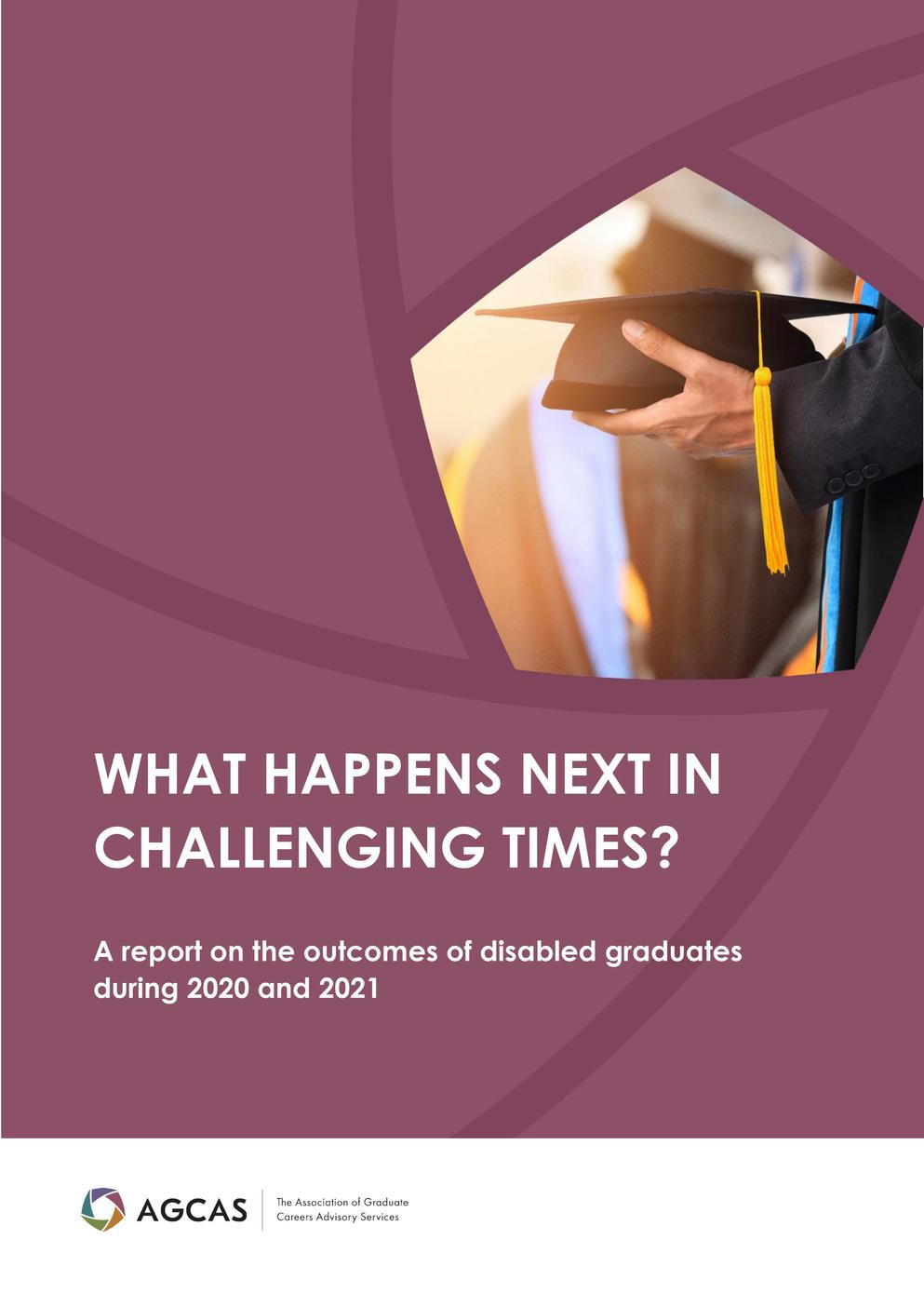
During the two decades of the WHN? series, disability-related legislation has changed across many parts of the UK, with Wales, Scotland and England all subject to the Equality Act 2010 Despite progress in wider attitudes and understanding, 72% of disabled people continue to experience negative attitudes or behaviour, most commonly from others making assumptions or judging their capabilities. The continued need for research that challenges assumptions and brings to light inequality of graduate outcomes is evident. In setting the direction for the next decade, AGCAS are focusing on how to incorporate more nuanced approaches, particularly by exploring how intersectionality may further exacerbate inequality of graduate outcomes.
Claire.toogood@agcas.org.uk
With disabled students making up 19% of home student enrolments in 2020/21, it is essential that the sector takes further action to address the disability employment gap Employers are losing out on the talents and perspectives that disabled graduates bring to workplaces The WHN series has illustrated the need for universities to prioritise disabled graduates by providing them with access to personalised, ongoing careers support Despite the wide-ranging changes of the past two decades, the need for this important work clearly remains


COLETTE PERCIVAL, Head of Careers and Enterprise - Student and Graduate Talent at University of the West of England (UWE) and HANNAH NEWMARCH, Deputy Director for Library, Careers and Inclusivity outline how partnering with graduate business FirstGens has supported first generation students to maximise their time at university and strive towards graduate career success
At UWE we have a diverse student body, with our students exhibiting a higher likelihood of attending state schools compared to the national average (94 4% versus 90 1% in 2019/20)
Approximately 30% of our young UK undergraduates come from low participation neighbourhoods (POLAR4), characterised by a lower likelihood of pursuing higher education among young individuals
At UWE Careers, our main aim is to “Unleash potential – building skills and confidence to navigate a fulfilling career journey”. We have three key areas of focus: career management skills, workintegrated-learning and all students graduating with an enterprising mindset. We are working towards all three being embedded and assessed in all programmes. Recognising that all students are individuals, with unique skills and lived experience, we look to build skills and confidence through a variety of mediums
“First-generation students are more likely to drop out of university” (Nuffield foundation, 2021), often facing unique challenges as they navigate the unfamiliar terrain of higher education (HE) Recognising the need for support and community, UWE alumna Alaya Holloway took the initiative to establish FirstGens, an organisation dedicated to empowering and guiding first-generation students on their academic journey, maximizing their time at university Recognising this unique opportunity, UWE partnered with FirstGens to deliver a transformative programme that is more than just employability
“A student from a disadvantaged background who gains a first-class degree from a top university is still less likely to secure an elite job than a more privileged student with a 2.2. This is the most significant driver of inequality in society.”
Alaya created Flourish, leveraging insights from former firstgeneration students and then working with our team to combine tailored context-specific signposting and UWE support Flourish takes a holistic view of the university experience, recognising that the whole journey can enable students to build skills, confidence and networks The programme aligns well with our strategy and is designed to equip students to maximise their opportunities at university
As we don’t have data on first generation students, to identify potential Flourish participants we worked with widening access teams to identify eligible students pre-arrival We also worked with academic colleagues who were able to identify some students with first generation status Though the programme was open to students across all courses, we focused on areas of the university with higher awarding gaps and students from low-participation neighbourhoods
In our 2022 pilot year, 33 students enrolled on the Flourish programme Students on the Flourish programme were all navigating multiple complex barriers: financial, mental and emotional. The most common words used during registration and sessions were ‘ worry ’ , ‘fear’ and 'daunting'. Comprised of several initiatives, the support is tailored for students to enable them to overcome socio-economic barriers to success. By building strong foundations, students will have a greater opportunity to maximise their time at university and accelerate towards their graduate career.
We co-created a digital offer with FirstGens The online workbook focusses on building confidence and working through imposter syndrome in the first year at university and beyond, which are recurrent themes across all our positive action programmes This digital resource will be rolled out to all students as part of UWE’s Start of the Year programme in September 2024
Participants are connected into a growing network of first-generation students, graduates and professionals
The pilot commenced with a live online course from October to March, designed to support students during the first six months transitioning to university. Including a series of eight fortnightly workshop sessions, the course aimed to facilitate a more positive experience in the formative weeks of their university journey. The programme focused on topics such as transitioning to HE, finances, academia, mentorship, networking, personal branding, LinkedIn, wellbeing, second-year housing and goal setting.
We engaged local social mobility organisation Babbasa to provide mentors and follow-on support for the Flourish cohort, in addition to dedicated networking, visits and insight days In 2022/23, students were invited to an exclusive lunch and networking event at the Department for Education, with an emphasis on creating a safe space to trial the skills they had built through the programme Participants are also connected into a growing network of first-generation students, graduates and professionals with lifetime access to the Community Network digital platform
Flourish participants can book ring-fenced appointments with an assigned Careers Consultant as well as having prioritised access to internships, start-up support and funding through the UWE Careers and Enterprise team This is something we offer across all our positive action programmes
Of the 33 students that enrolled in the pilot year of the Flourish programme, initial feedback revealed that 75% of participants felt overwhelmed about navigating university By the end of the scheme, 100% reported having confidence to explore their career options, knowing how to develop the skills needed to pursue their career goals, and that they felt more positive and inspired about the future 60% reported that as a direct result of the programme, they had already applied for work/insight experience
Flourish students reported a variety of newly developed skills, such as problem-solving, adaptability, networking, communication and many more They were also more able to connect with other services at UWE and felt confident in doing so 100% felt more positive and inspired about their future The lessons learned from this programme are being used to improve processes, information, teaching and support across UWE
UWE and First Gens are now in their second year of the ‘Flourish’ programme We are supporting 15 students this year as well as promoting the digital workbook to all students We have worked collaboratively with academic colleagues, the Student Union and professional services staff to ensure our ‘first in the family’ students are recognised and supported.The pilot was a huge success, and we look forward to continuing our partnership with FirstGens to ensure that our students have the best chance of success and university life sets them up for a positive and transformative experience.

"UWE has been instrumental in the development of both our programme and the way we've approached data to capture insights that would contribute towards institutional change. I have appreciated UWE Bristol's commitment to systemic change in building a more inclusive and accessible environment. The team are approachable and passionate about their work, and I have enjoyed the journey, collaborating to build an innovative programme that seeks to create positive change for both the UWE student community and the wider UK social mobility agenda.
With the invaluable expertise and support from UWE, we have been able to empower and assist a student community that is least likely to pursue higher education and has been identified by the OfS as at risk of inequality of opportunity. Together, we are making a tangible difference to students' trajectories, confidence to navigate university and engage with employability opportunities. It's an inspiring journey of transformation, and we're honoured to be a part of it."

JOHNNY DIXON, Student and Graduate Enterprise Manager at Manchester Metropolitan University, outlines how the impact of conscious representation and central institutional strategy have aided the Careers and Employability Service to encourage participation with the sector from members of underrepresented groups
Ethnic minority and female students and graduates interested in a career in the enterprise sector face a societal barrier of underrepresentation A lack of exposure to entrepreneurial role models from ethnic minority backgrounds risks limiting the entrepreneurial aspirations of Black and minority ethnic students and graduates, and for every ten male UK entrepreneurs, there are fewer than five female entrepreneurs
As a result, people from these demographics are less likely to find careers in the enterprise space. This is undoubtedly the result of wider societal norms and pressures. As careers professionals, we have the chance to validate and empower individuals within these groups and influence change in the sector.

In the 2022/23 academic year, of the roughly 35,000 home students at Manchester Metropolitan University, 59% identified as female and 34% were from ethnic minority backgrounds However, members of these groups are not fairly represented in the national enterprise careers sector When considering gender representation, only 39% of the UK’s solo self-employed workforce identify as female. People from ethnic minority backgrounds are underrepresented at founder and director level and also within the creative freelancing sectors.
Therefore, many of our students face a barrier of representation when looking to pursue careers as freelancers, artists and entrepreneurs As careers professionals, we work to remove barriers for access where possible This requires a conscious focus on removing inequalities at the point of exploring careers
Raising awareness of the general lack of representation, and taking steps to empower and validate students to explore career options in areas they typically don’t see themselves reflected, can only be a positive force for change in the sector We aim to encourage more students to pursue a career that they want, regardless of the sector and their own background
In response to the challenge of representation, the Enterprise Team at Manchester Metropolitan’s University’s careers service developed our mission statement to ensure that “all enterpriserelated content and student support should be reflective of the diverse student population and seek to encourage students from underrepresented groups to consider careers in the enterprise sector”
Many of our students face a barrier of representation
We set a target of engagement with our work from members of these underrepresented groups outperforming the institutional average Despite only being the team’s first year of activity, this was achieved in the 2022/23 academic year
Institutional Average (Average proportion of each of these groups in the whole student body population)
Students engaged with Careers Service Enterprise activity
These results show a desire from ethnic minority and female-identifying students to engage with enterprise-specific support, and we are confident that the role of external representation has been vital in encouraging this
As part of our offer, we provide workshops developing skills for an enterprise-related career. The workshops are delivered by local, external entrepreneurs and freelancers who identify as ethnic minority, female or both. The facilitators themselves are central to the promotion of the events, to celebrate this diversity and show students from similar demographics that they are prevalent and celebrated in the sector
External engagement of this kind is fundamental to our work
Through genuine collaboration with these facilitators, we are informed first-hand by those with lived experiences This conscious representation has helped to encourage students from these groups to consider enterprise as a potential career
By providing culturally aware, enterprise-specific careers support, we can hope to influence change in an unequal sector However, this requires an overarching strategy from the university to empower staff to consciously pursue this change The careers service and the university are explicitly committed to ensuring those students from underrepresented groups can achieve their career aspirations.
Ensuring an inclusive and diverse culture is central to the work of all university staff. The university has recently developed a new Inclusive and Diverse Culture (IDC) strategy which outlines the university’s key areas of focus to build an intentionally inclusive culture for all One area is to ensure an inclusive student experience, whereby we proactively remove differential gaps for graduate outcomes This centralised strategy empowers and encourages all staff, particularly those in the careers service, to ensure a consistent and relentless focus on tackling inequity
To continue to diversify the local enterprise sector, we also provide support through a “Train the Trainer” model This allows entrepreneurs and creatives in the Manchester area who are interested in facilitating workshops to complete an online self-study kit and attend in-person training This upskilling not only supports local entrepreneurs, but also allows us to identify new facilitators for workshops to ensure a regularly refreshed and diverse group of facilitators j.dixon@mmu.ac.uk
Institutions have a role to play in promoting a culture of inclusivity and celebration of diversity
Our enterprise-curious students and graduates face a barrier of representation when moving into the world of work By consciously showcasing and celebrating diverse entrepreneurs, we can start to remove this barrier and validate alternative career journeys Institutions have a role to play in promoting a culture of inclusivity and celebration of diversity, to encourage and empower careers professionals to remove these barriers and challenge inequality
Careers services staff across Wales outline the transformative impact of the Targeted Employability Support Scheme from the Higher Education Funding Council for Wales.
The Targeted Employability Support Scheme (TESS) is funded by the Higher Education Funding Council for Wales (HEFCW) and is delivered across all higher education institutions (HEIs) as well as directly funded further education institutions (FEIs) in Wales This builds on the European Social Funded GO Wales: Achieve through Work Experience programme, which ran successfully for six years
Commencing on 1 November 2022, its aim is to empower students from underrepresented groups through personalised support, acknowledging that many students identify with multiple priority groups We all have the flexibility to tailor the scheme in a way that meets the needs of our students
All HEIs in Wales, together with Grŵp Llandrillo Menai, Neath Port Talbot College and Gower College Swansea, work collaboratively on sharing best practice through regular meetings, emails and a shared Teams site, to the benefit of students and employers across Wales. As a sector, we invested in a bilingual online Employability e-Hub, providing tools for students to enhance their employability prospects. Although targeted at students studying in Wales, it is a resource that is available to all, including AGCAS colleagues Between its launch in December 2023 to end January 2024, the e-Hub has attracted over 10,300 visitors
TESS also allows students across Wales to engage directly with employers from various industries The Meet the Professionals series is a joint initiative offering interactive online or face-to-face sessions, allowing students to ask questions and gain firsthand insights into the roles, responsibilities and skill requirements of different professions
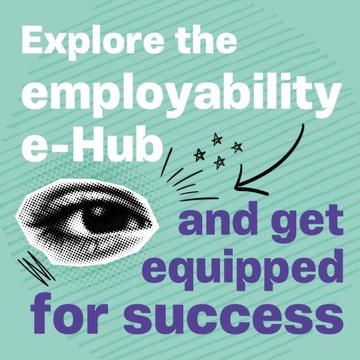
Students across Wales have been supported in various ways, including one-to-one careers advice and guidance, online resources, financial support, entrepreneurship support, bespoke events, mentoring and work experience opportunities The student voice is our priority, and each institution is committed to tailoring the scheme to the individual needs of their students
Supported by TESS, students have undertaken a range of placement and work experience opportunities For example, a Swansea University student undertook a paid placement in the microbiology department at Public Health Wales, on a project aligned with the NHS decarbonisation strategy The student reported:
“I improved my confidence, presentation and communication skills in a work environment. This placement developed my leadership and persuasion skills through talking to staff members and making sure my point was heard and understood. I feel like part of this team, and I would love to work with them in the future.”
Aberystwyth University arranged a social media work experience for a student with Arts and Mind and at Cardiff University, students participated in Managing and Promoting Positive Mental Health and Wellbeing training, provided by i-act The course covered practical tools for managing stress, anxiety and low mood and provided guidance to support someone who may be experiencing a mental health or wellbeing issue On completion, students received certification as an approved i-act practitioner, valid for 3 years
We are reshaping the trajectories of underrepresented students
Students from Grŵp Llandrillo Menai engaged with a careers mentor to gain guidance on what development and support they need for the next steps towards graduate employment Students attended skills sessions, engaged with employer panels for career discussions and benefited from entrepreneurial workshops
At Wrexham University, a
“They introduced me to voluntary work with SSAFA which I recently successfully applied for; they make sure you have everything you need.”
TESS supported 1035 students across Wales in 2022/2023 whom, on average, identified with at least three of our priority groups Of those students, 400 undertook work experience An employability confidence indicator was used at the start of our engagement and again following our support 461 students reported improved confidence within the first year while other students are continuing to receive support All students receiving support via TESS are flagged in the Higher Education Statistics Agency return so that we can monitor the impact on graduate outcomes in the long term. We also gather feedback and case studies to measure the impact.
TESS stands as a transformative force, reshaping the trajectories of underrepresented students With its strategic vision, collaborative ethos, and unwavering commitment to inclusivity, it serves as the driving force propelling these students toward academic and professional triumphs By empowering providers to tailor their support, the funding prioritises those in need of additional assistance, and paves the way for a more inclusive and equitable higher education landscape, ensuring that no student is left behind in the pursuit of success
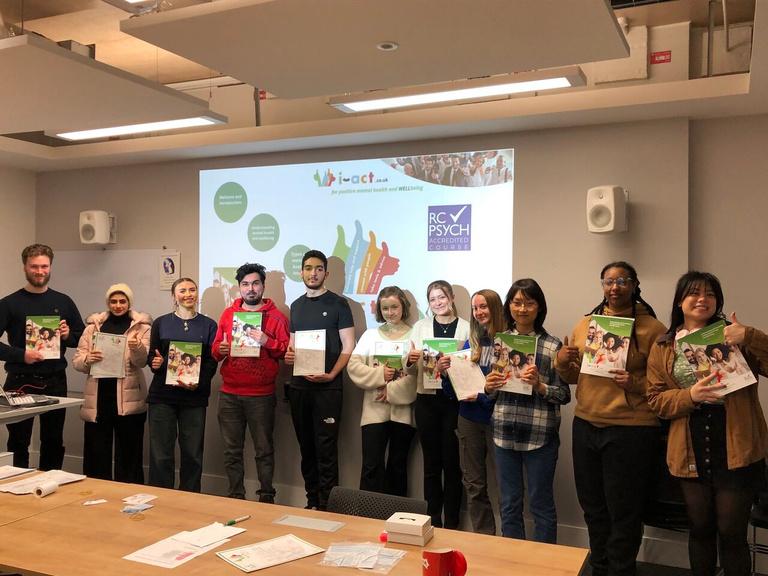
“TESS is instrumental in equipping students furthest from the labour market with the social capital and experience to succeed in a competitive job market, transforming their lives, and contributing to narrowing differential graduate outcomes for students under-represented in HE”
 Emma Mock, Head of Skills and Employability at HEFCW
Emma Mock, Head of Skills and Employability at HEFCW
With thanks to Jo Jenkins, Cardiff University and Zdravka Kamenova, Swansea University for leading on this piece.
Your university and college | The Employability e-Hub Aberystwyth University - crsupport@aber.ac.uk
Bangor University- workexperiencesupport@bangor.ac.uk
Cardiff Metropolitan University - wideningsuccess@cardiffmet ac uk
Cardiff University- careerconfident@cardiff.ac.uk
The Open University in Wales - gowales@ou ac uk
Swansea University - careerboost@swansea.ac.uk
University of South Wales - careersplus@southwales.ac.uk
University of Wales Trinity Saint David - careers@uwtsd ac uk
Wrexham University - careers@wrexham.ac.uk
Grŵp Llandrillo Menai (GLlM) - owen9j@gllm ac uk
Grwp Colegau NPTC - victoria.burroughs@nptcgroup.ac.uk
Gower College Swansea - Catherine.Jenkins@gowercollegeswansea.ac.uk

University of London, delves into the Summer Skills Placement Programme (SSPP), a suite of support amid the financial strains and growing diversity faced by higher education institutions. The SSPP champions social mobility and empowers underrepresented students, with an inclusive framework and innovative collaborations
The Placements team at Royal Holloway is, like many institutions, facing increasing challenges as a result of a squeeze in budgets, the ongoing cost-of-living crisis and a rise in student numbers presenting with disabilities and mental health conditions In response, we launched the Summer Skills Placement Programme (SSPP), a holistic initiative dedicated to supporting the aspirations of our students As we navigate the shifting landscape of Access and Participation Plans (APPs) and grapple with resource constraints, it is important to spotlight programmes that support these frameworks
Running since 2017 but relaunched with a widening participation (WP) focus in 2021, the SSPP represents Royal Holloway's commitment to equipping students from diverse backgrounds with the necessary tools, attributes and experiences to thrive in the world of work The core objective is to provide all students with equitable access to a transformative work experience throughout their academic journey. All first-year and second-year undergraduates who meet the criteria are eligible to apply by commencing the pathway activities.
Its inclusive design caters to the needs of underrepresented cohorts, including first-generation university attendees, students from low socio-economic backgrounds, those with disabilities or neurodiversity, individuals from Black heritage, and care leavers It addresses the challenges that some of these students face in securing graduate roles and accessing meaningful work-based learning opportunities, ensuring that no one is left behind in the pursuit of positive graduate outcomes
With the increasing support of academic colleagues, work-based learning is no longer viewed as an ‘add on ’ but more as an essential part of the academic journey to prepare students for life beyond graduation The unwavering support from each School’s EDI Vice Dean has not only driven student applications but also strengthened collaborative working across the university
The Placements Team have utilised student/staff talent by cocreating activities, creative content and social media to ensure the programme is authentic and well received by the student demographic Combined with tailored communications from the Disability and Neurodiversity Team, significant support from the Student Union, promotions on university radio and utilising the intuitive targeted email function on the host platform have further increased student participation in the SSPP This has engaged students who would not usually find us: participation in the programme is up nearly 100% from 2023
The pathway of activities, carefully curated and delivered online for flexibility, is the foundation of the programme's success Spanning the autumn and spring terms, these interactive activities encompass a range of modules, from CV webinars to interview e-learning sessions Students are guided through a motivating gamified experience, unlocking access to new levels as they progress and collecting employability points, culminating in the opportunity to apply for exclusive summer placements in various industries sourced by the placement team Students also benefit from an online course, audited by EmployAbility, which is bursting with accessible resources, advice, and support around a variety of topics including work-based skills, disability support and wellbeing
Another significant impact of the SSPP is the increased confidence among a student cohort who often lack this attribute. By simulating a real-world application process without the same level of pressure/rejection, plus tailored and supportive feedback, it allows a safe and encouraging space for students to grow and develop their work-based skills/employability as they learn to put themselves out there for opportunities
"This programme has definitely impacted my career journey as I now feel more confident to apply for other placements or jobs."
SSPP student
The SSPP demonstrates the power of higher education in shaping a more equitable landscape for future generations
Despite facing budgetary constraints, the SSPP has remained committed in its mission to empower students and enhance social mobility By focusing on strategic collaborations with alumni mentors (all students who complete a placement have access to an alumni mentor in their final year) and external partners we have been able to supplement the programme ’ s offerings at no extra cost, providing students with invaluable insights beyond the limits of the university campus.
We have made the most of our existing online platforms by exploring the functionalities with our account managers enabling us to unlock potential, streamlining our offering and reducing the need for additional costly subscriptions
With social mobility in mind, it’s crucial students can all access the same level of support, but furthermore, we recognise the value in peer-to-peer conversations and have facilitated events where students share success stories and inspire each other
Student feedback has been overwhelmingly positive From surveying the 104 students who took part in the last cycle, 98 % said they would recommend the SSPP and 30% of students are continuing to work or engage with their placement host beyond their placement
The benefits are numerous. The placement provides students with an insight into industry and enables skills development and networking. Students report that the preparational work and follow-up support they are given results in increased confidence in their abilities to apply for future roles and helps them identify a range of skills they were not aware they had previously.
However, it’s not the stats that drive them to continue their hard work with the SSPP, rather the numerous personal stories from students talking passionately about what they have gained and their newfound confidence for what lies beyond graduating Yes, a LinkedIn recommendation and certificate of completion are desirable, but what can be more valuable than feeling optimistic about your career prospects in what is arguably the most uncertain and turbulent economic landscape in recent times?
"The support given is unmatched, and I am very proud to have been involved in this process.”
SSPP student
Building on its previous success, the SSPP demonstrates the power of higher education in shaping a more equitable landscape for future generations With increasing numbers of students meeting the SSPP eligibility criteria and renewed funding secured through the APP, the programme is well positioned to continue its transformative work, enabling the SSPP to remain committed to supporting students for another five years Lisa.Medd@RoyalHolloway.ac.uk


AMY CARPENTER, Associate Director, Careers, Employability and Enterprise at the University of Suffolk, discusses how the University has spent the last two years reshaping the careers and enterprise offer. Now, with a new structure, new priorities, new ways of working and new supporting systems, the university can offer a targeted service that reflects the needs of a diverse student body.
Until 2007, Suffolk was one of only a handful of UK counties without a university University Campus Suffolk was opened with the degree-awarding support of the universities of Essex and East Anglia, and by 2016, the fully independent University of Suffolk was launched As a relative newcomer, the student population is made up of many local, mature students, as well as a large population of students who would be categorised by the Office for Students (OfS) as being from underrepresented backgrounds In this academic year, almost half of our students were living in Suffolk at point of application, 44% were living in a POLAR4 Q1/2 area when they started, 65% are over-21, and almost 25% have declared a disability
We must continually look for new ways to give our students meaningful opportunities and experiences that are equitable to their peers
During 2021, the Careers and Student Enterprise teams were merged and moved into the Business Engagement Directorate, creating an opportunity for the institution to re-evaluate the support on offer With a newly appointed Head (me!), a new strategy and vision for the team was developed to recognise and respond to the diverse needs of our student population Priorities included the everincreasing focus on progression by OfS, maintaining our Graduate Outcomes score of 80%, and putting us in a strong position to support an anticipated growth in student numbers. During 2022, an investment was approved by the university's board that would multiply the operations and salary budget for the department by around seven times. This enabled us to grow the team from four to 14, introduce new technology (including Bodyswaps, a VR platform), and instigate the launch of the university’s in-person careers hub, now officially known as the Enterprise and Careers Zone, which launched in September 2023
Placement Consultants and Employability & Careers (E&C) Consultants were hired to align to each of our Schools, along with two specialist E&C Consultants One works with apprentices and helps us maintain and build on our ‘Good’ Ofsted outcome, and a second undertakes specialist support, working with underrepresented groups, postgraduates and international students (who are mostly postgraduates)
Through this, we ’ ve launched two key initiatives in the last year: ‘Build Your Future’, a support network and suite of initiatives for students who may face additional barriers to progression, and a targeted support package for our estranged and care-experienced students, enabled by philanthropic donations to the university
One of our most successful initiatives is our micro-placement scheme, launched in 2017, to address extremely low confidence levels, very limited (and often no) work experience, and other barriers to accessing traditional ‘student’ jobs and internships
Offering 30-hour paid placements with teams across the university in highly supported, flexible positions, the scheme has grown from supporting three students in its first year, to offering at least 37 placements this year. Demand from both students and university departments is at the highest level we ’ ve ever seen. Recent research undertaken as a result of a TASO grant provided clear evidence of its impact on participating students. The average perceived impact on skills such as communication and networking, as well as confidence and self-esteem, went from 4.2 to 7.4, and many expressed that they felt they would not be in their current roles without this placement experience
Some of our highlights for the 2022-23 academic year (vs. 2021-22) include:
A 151% increase in students completing our online, optional careers self-assessment
A 30% increase in students attending a curriculum session led by a careers team member
A 34% increase in applications to our micro-placement scheme
Almost 150 students and graduates engaging in enterprise and entrepreneurship workshops and activities, with 14 student and graduate businesses supported
Almost 50% of all students meaningfully engaging with our FutureMe career platform, the biggest year since the platform launched back in 2018.
As we look ahead to the rest of this academic year and beyond, we ’ ve got even more big ideas We are supporting a transition project led by the university’s Access Team for first-year students beginning their university studies We are offering new summer internships for final-year students with zero work experience We have big plans for further embedded and in-curriculum activity, in relation to both employability and entrepreneurship, and we have aspirations to grow ‘Build Your Future’ and other targeted initiatives to include mentoring, and more asynchronous content
We are working on brand new ways for students to gain internal and external work experience and start-up/freelance experience in a region where the labour market is mostly made up of SMEs and micro-businesses We must continually look for new ways to give our students meaningful opportunities and experiences that are equitable to their peers, both at Suffolk and beyond
One of our biggest challenges, as for many, is student engagement, and creating accessible ways to reach our students. Many are already in part-time work, have caring responsibilities and additional barriers. Ensuring everything we do is accessible and equitable to as many as possible will be an ongoing problem. However, the significant increase in student engagement demonstrates the immediate impact of the new structure, additional resource and accessible support This is something I am extremely proud to have introduced to the university



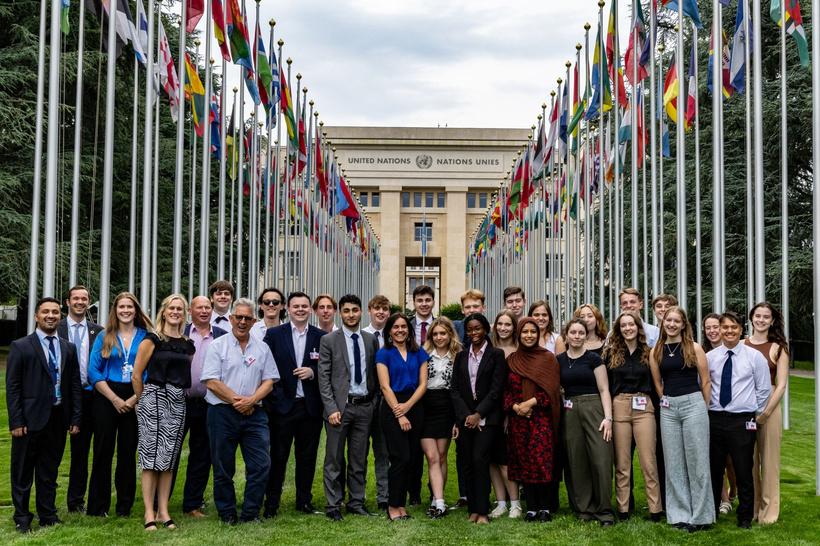

ANDREA HODGES, Employment Schemes Manager, KATE FOSTER, Employability and Careers Consultant and KAYLEIGH SANDERCOCK, Partnerships and Global Employability Officer outline the University of Exeter’s bespoke portfolio of careers and employability services delivered to underrepresented and disadvantaged students
Integral to the University of Exeter’s ‘Success for All’ strategy, committed to enabling social mobility through education, the Student Employability & Academic Success (SEAS) division is responsible for delivering a tailored portfolio of support for underrepresented and disadvantaged students throughout their journey into graduate-level employment
In addition to the comprehensive portfolio of employability provision available for all students, SEAS delivers a range of ringfenced progression activity, funded through the university’s Access and Participation Plan (APP) More than 600 students benefit annually from bespoke one-to-one and group guidance and a range of targeted activities.
Access to Internships (A2i) supports employers by offsetting the salary for hiring widening participation (WP) students on a paid internship Students secure their first step onto the career ladder by sourcing a UK internship with the support of a dedicated careers consultant Collaboration between the university and employers to remove barriers for WP students is the cornerstone of the scheme to grow future talent and support the demand for skills in the region The scheme enhances student employability, whilst addressing the unique challenges WP students may face when job hunting, including a lack of self-confidence and personal networks
Over 200 A2i internships are supported annually throughout the academic year to help students undertake high-quality, careerenhancing experiences within a range of sectors The most popular sectors represented externally were Heritage, Advertising, PR and Marketing 47% of applications came from students from the Faculty of Humanities Arts and Social Sciences, and 40% were from the Faculty of Environment, Science and Economy The greatest number of applications were received from Exeter bursary recipients, disabled students and first generation at university students. 100% of A2i students surveyed said their employability skills had improved following their internship.
Our internships provide students with high-quality, career-enhancing experiences within a range of sectors
Global Leaders Experience (GLE) is an intensive, experiential and place-based learning programme, typically a week in duration, focusing on a mobility experience outside the UK It combines educational, cultural and ‘real world' learning experiences aligned to the development of interdisciplinary knowledge and acquisition of high-level skills required for professional career paths
Destinations visited since 2015 include Barcelona, Bucharest, Kolkata, Chicago, Geneva, Kosovo, Kuala Lumpur, The Hague, Sharjah among many others.
Designed to increase self-efficacy and general employability levels of WP students, it provides opportunities and access to unique professional networks that students with lower social capital might not otherwise be able to access Through our partnerships with commercial and global not-for-profit education providers, we codesign two broad strands of programmes
Strand one focuses on delivering immersive experiences in a given sector, including careers in the United Nations (and affiliated organisations) and international event management Strand two focuses on workshops and problem-solving activities facilitated by visits to host cities with socio-economic challenges, working closely with local NGOs, charities and commercial organisations
In addition to the knowledge acquired in engaging with the local environment and challenges, the week is interspersed with interactive micro-teaching sessions These are designed to support the participants in navigating tasks, reflecting on the benefits and impact of individual experiences and maximising personal benefit from the programme
Over 700 students have benefited from the programme, working in intercultural groups to create meaningful solutions to challenges and presented this to their peers and senior organisation leaders and CEOs 95% of participants who took part in A2i and GLE secured graduate-level employment
Through partnerships with top employers and universities, upReach is a charity organisation offering students from less privileged backgrounds access to a comprehensive range of personal support and work opportunities to broaden their horizons, understand career pathways and develop the skills, networks and experiences needed for professional success.
Originating with a London presence, upReach has expanded its offices and networks with employers across UK regions. Working with upReach since its inception in 2012, the partnership has supported over 700 Exeter students
“Working in collaboration with University of Exeter has been an incredible experience. We initially requested to recruit two interns and 50 students applied. We have eventually chosen to work with 14 part-time students which has provided us with a range of talented individuals who are coming together to help support a world freer of mental ill health and suicide.”
Further to standard approaches collating student engagement, satisfaction feedback and onward employment analysis, we have introduced additional strands for evaluation and continuous quality improvement This includes ensuring reach and maximum engagement through exploring inhibitors for students engaging in these activities and their wider career development
An example of such activity is the Employability Monsters project which explored challenges and barriers that WP students face in developing their employability, and how the Career Zone (the student-facing brand of SEAS) could further support these students to better equip them to overcome these challenges There have been a range of outputs of this project, including creation of an online careers support for WP students resource and employability showcase events for WP students We have completed an audit of the support available for neurodiverse students and introduced a quiet hour at careers fairs We have adopted Lego Serious Play as a creative approach to engaging students in career decision making and funded research to support WP students to gain interview confidence utilising Virtual Reality technology
We are also actively seeking external evaluation of impact, such as the recent TASO evaluation report for Access to Internships (A2I) Evidence showed that the internships scheme increased workrelated confidence, skills and knowledge for participants, and was associated with positive employment outcomes Funding from JISC has now been secured to apply this evaluation methodology to the Global Leaders Experience programmes.
Combined consultations with academic and professional services staff are now in train which will consider the outcomes of the evaluation measures above. These consultations will also review and explore how the reach of these programmes can be improved to engage those students most in need of such support

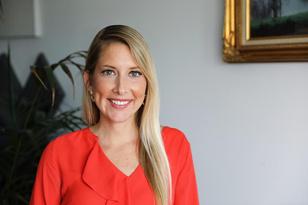


of
StudentSupport and Success at the University of Roehampton, outline how the institution is breaking barriers and empowering students from diverse backgrounds to succeed. By leveraging data-driven support, tailored opportunities, collaborative initiatives and recognition programmes, Roehampton is creating an inclusive environment where every student can thrive and reach their full potential.
As the landscape of education continues to evolve, including shifts in teaching methodologies, changes in curriculum standards, reforms in educational policies and the impact of broader societal influences, universities are increasingly recognising the pivotal role they play in fostering social mobility
At the University of Roehampton, this commitment is not just a buzzword but a lived reality, evidenced by our wide demographic of students and innovative programmes aimed at levelling the playing field for all As an institution committed to fostering diversity and inclusion, we are paving the way for promoting social mobility in higher education Based on University of Roehampton enrolment data, 78% of our students represent a wide range of ethnic backgrounds The university recognises the importance of providing tailored support and unique opportunities to ensure every student has the chance to succeed
At the heart of our efforts to promote social mobility is a commitment to data-driven decision-making By leveraging careers registration data, we gain insights into which students may require additional support and intervention This allows us to tailor our activities and resources to address specific needs, ensuring that these students are not left behind For example, our careers registration survey data has shown that students from minority ethnic backgrounds often have lower confidence levels and access fewer opportunities for work experience in their chosen fields By proactively targeting these students with tailored support, we can help bridge the gap and create more equitable opportunities for all
To support graduate outcomes, we have developed a range of unique work experience opportunities tailored to meet the diverse needs of our student body From project work within the university to internships in faculties and professional services, students have access to hands-on experiences that enhance their skills and knowledge Additionally, funded external work experience with various organisations and/or charities, provide students with the chance to gain valuable real-world expertise whilst contributing to their academic and professional development
“Our Roehampton intern has just completed a great piece of work that will be a perfect advert for the quality of your graduates. I will be working very closely with him to perfect the project and maximise the opportunity – I will be sending his work to Amazon, BBC Sport, ITV Sport, Sky Sport and to a couple of corporate clients. He has the perfect attitude for this industry. He will go far!”
Julian Oliver, Director Conscious CreateOur ‘WeWork-type’ co-working spaces on campus encourage diverse experiences in organisations that may not have a traditional office setting These are predominantly local, remote SMEs bringing their team together on campus to work on projects Employers and students are co-working, creating a real-world working environment that many of our students have not previously experienced This unique feature further expands the collection of opportunities available to our students, ensuring they gain valuable insights and skills in a dynamic professional environment
These opportunities are deliberately prioritised for those who are least prepared in their career journey, as indicated by careers registration data To measure the effectiveness of these initiatives, we consistently conduct both pre- and post-participation surveys These surveys reveal tangible results, showing that 97% of students experience a notable boost in confidence regarding their career aspirations after engaging with these opportunities
Central to our commitment to social mobility is the collaboration between academic schools and the university's employability services Roehampton Futures: Career Development Week offers students a dedicated platform to engage with employers, alumni, and industry professionals This runs in the autumn and spring, and sessions include a mix of employer-led sessions (live briefs and training), alumni panel discussions to help broaden career horizons, interactive training and mock assessment centre activity
By integrating employability-focused activities into the academic calendar, when most institutions would have a ‘reading week’, we demonstrate our high priority on preparing students for their future careers Our partnership model with academics ensures that each school has a designated employability lead who works closely with their allocated careers advisor to tailor support and develop a customised employability strategy, working in partnership with Deans and Deputy Deans of each school.

Embedded career preparation modules, integrated into course curriculum across all subject areas in the first and/or second year, further equip students with the skills and knowledge needed to succeed in their chosen fields These modules not only enhance students' academic learning but also provide practical insights and guidance on navigating the professional world Importantly, they serve as an invaluable resource for reaching students who, for various reasons, may not be able to participate in extracurricular activities. By integrating career preparation directly into the curriculum, we ensure that all students have access to essential career development resources, regardless of their circumstances or availability for additional activities. Prioritising employability from the outset and fostering strong partnerships across departments also means we create a supportive ecosystem that empowers students to thrive.
We have created a supportive employability ecosystem that empowers students to thrive
Roehampton offers a Student Futures Award, recognising those who have demonstrated exceptional dedication and success in enhancing their employability skills By showcasing these success stories, we not only motivate other students but also highlight the importance of proactive career development In addition, entrepreneurship programmes, such as Launchpad, provide aspiring entrepreneurs with the resources and support needed to turn their innovative ideas into reality, further expanding opportunities for student success Through these initiatives, we not only provide students with the skills needed for ‘traditional’ employment but also foster a spirit of innovation and entrepreneurship that encourages them to create their own paths to success
The University of Roehampton's dedication to social mobility is evident in its proactive approach to providing tailored support, fostering collaboration, and leveraging data to inform targeted interventions By prioritising opportunities for those who need them most and empowering students to take control of their own career paths, we are breaking down barriers and creating a more inclusive and equitable learning environment Through continued innovation and collaboration, we are committed to unlocking the full potential of every student and ensuring that success knows no bounds.





ELLIE ROBERTS-VICK, Equality, Diversity and Inclusion Project Officer, University of Liverpool, JAMES TAYLOR, Employer Engagement Adviser, LSE and STEVE HAINES, Founder of How to Go to Work reflect on common challenges in addressing support mobility and how a collaborative approach can support universities, students and graduates.
At the University of Liverpool (UoL) and LSE Careers, we ’ ve made a firm commitment to supporting social mobility in our work by setting up targeted programmes for students from underrepresented backgrounds.
At the start of 2023/24, the team at Liverpool launched Equality Plus, which aims to create an inclusive environment for all UoL students through accessible internships, paid summer work placements, events and resources LSE Careers are currently creating an offering of targeted careers support for students who are the first generation of their family to attend university and who attended a UK state school, are care-experienced, have caring responsibilities, are bursary holders or were entitled to free school meals at state school Steve at How to Go to Work has supported these programmes, sharing learning and developing new initiatives to engage students While building these programmes, we have faced similar challenges and identified initiatives to address them
A key challenge was defining and identifying our target students Within diverse student bodies, it’s important to be clear about who programmes are for, and how to effectively promote them and their benefits UoL adopted a data-driven approach By analysing internal and external datasets, the team identified the students facing the most significant barriers, including financial constraints to participate in activities, less prior access to careers advice and guidance and self-perception and sense of belonging
LSE Careers created a mailing list that students can opt to sign up for should they meet one or more of five key social mobility criteria This has allowed the team to gather and analyse important data which can be used when designing a targeted social mobility programme This has also created a channel through which target students can be contacted directly to offer tailored support and promote events
UoL works closely with the Widening Participation and Recruitment team, who engage with students pre-entry This ensures a seamless transition for new students, instilling confidence in the support systems available for their future and career development
We’re fully committed to exploring new and innovative ways to engage our target groups of students to reduce the barriers and challenges they face
UoL have been pioneering peer-to-peer support since 2018 The Career Studio is a space led by students, for students, empowered by career experts Growing the peer-to-peer approach to ensure peers with relatable backgrounds to our target groups has been key Introducing digital coaches, mentors and graduate interns has helped shape the UoL team’s work
LSE Careers has recently launched a new mentoring programme for students from low socio-economic backgrounds Alumni who graduated more than two years ago support second-year undergraduates for a period of 6 months, while final year undergraduate and masters students will become mentors for firstyear undergraduate students
UoL engage students with podcasts, virtual and in-person sessions and digital platforms to promote interaction and encourage students to explore the careers services. Additionally, events, blogs and case studies featuring recent graduates from underrepresented backgrounds have enriched the program with fresh, relatable perspectives.
Engaging with students from low socio-economic backgrounds inperson has sometimes proved challenging LSE Careers have recently hired a student for a paid, part-time role to develop a bank of online content that can be accessed and shared all year round This will include bitesize social media video interviews and online blogs with a focus on careers and personal development advice
LSE Careers is currently advertising 10 fully funded, full-time and part-time summer internships Students from low socio-economic backgrounds can apply to a variety of FT and PT summer internships with UK charities and SMEs, carefully selected for their commitment to EDI There will be 15 funded roles in 2025 and 20 in 2026
UoL and LSE Careers are collaborating with employers on equality, diversity and inclusion (EDI) related issues, and host a wide range of employer events for students This includes inviting employers who share a strong commitment to improving social mobility to join panels These showcase best practice,hiring initiatives and tips on what students should expect to see from an employer genuinely committed to creating an inclusive workforce We have seen real value in bringing together careers services, employers and students to discuss these initiatives, and it’s proven to be a good way to identify opportunities for collaboration
LSE Careers have partnered with organisations to arrange office visits for students from low-income households These visits provide an opportunity for students to gain a firsthand insight into the organisational culture and meet with their diversity teams and networks. As part of this partnership, LSE Careers are also now codelivering interactive skills workshops and personal development sessions alongside the employer.
Although LSE and UoL feel extremely positive about the work and the progress we ’ re making, there’s still a long way to go We’re fully committed to exploring new and innovative ways to engage our target groups of students to reduce the barriers and challenges they face We will continuously evaluate our methods, tracking student feedback and employment outcomes to determine the most impactful approaches
Over time, we hope to build closer links with admissions departments, widening participation teams and faculties to track students through their time with us and work together to provide careers support wherever they are in their journey. So far, we have been working with different employers in a similar way, but the increasing interest from employers in promoting social mobility provides an opportunity for universities to collaborate, defining and supporting shared social mobility goals.



To support careers professionals with their internal discussions and planning around embedding employability in the curriculum, GEMMA KENYON, AGCAS Integrating Employability Director and Director of Careers and Employability at City, University of London, analyses the Advance HE Framework for Embedding Employability in Higher Education and calls for greater engagement with careers team expertise.
Within the context of policy developments such as the Teaching Excellence Framework and B3 conditions, it is unsurprising that embedding employability in the curriculum is a strategic priority for universities Indeed, in the AGCAS 2023/24 survey of 115 heads of university careers services, we found that embedding employability in the curriculum has jumped up careers leaders’ priority list, from sixth in importance in 2020/21 to second in 2023/24
This trend is expected to continue; our research shows that 90% of careers service leaders expect to do even more to support embedding employability in future Increasingly, careers service professionals are themselves educators in this endeavour, working in partnership with academics in both the institutional development and leadership of new strategies and in the delivery of teaching and learning.
There is no ‘ one size fits all’ approach to embedding employability in the curriculum With many different approaches and components to consider, sector support and engagement with employability professionals to demystify this work is welcome A recent development in this sector support has been the publication of the Advance HE Framework for Embedding Employability in Higher Education.
The framework incorporates three perspectives, those of the institution, the educator and the student. For each of those perspectives, the framework highlights policies, practices and competencies which can embed employability and support student success I was pleased to see this new framework highlighting a range of different stakeholders with students rightly at the centre However, it was disappointing that there was no specific consideration of the role of institutional careers and employability experts
The institutional level of the framework includes professional services, but without a specific refence to careers teams At the educator level of the framework, the focus is on course and programme teams as educators, omitting the crucial role of careers staff in designing and delivering employability education Advance HE have effectively overlooked the expertise, strategic guidance and vital contributions made by careers professionals employed within every UK university
Careers professionals have the expertise to both direct the strategic decisions that embed employability within an institution, and also to deliver the operational elements of the framework to engage and support students Senior careers professionals sit on the boards and committees that set institutional strategy and policies, playing key roles in decision making and the creation of shared vision around employability They inform course and curriculum design, as well as managing and delivering aspects of employability in the classroom In their day-to-day work, careers experts can help other educators to consider the best practice for using this resource, including identifying where to start and how to work most effectively with the various stakeholders listed in the framework Without the expertise of careers and employability teams, the much-needed conversations and collaborations that truly add value when embedding employability may be missed
Institutions that utilise the knowledge, understanding and experience of their careers teams within the curriculum will be able to access a wealth of support to benefit their learners and outcomes This essential aspect of embedding employability is not given sufficient importance in the framework; but Advance HE’s recent “Lighting the Labyrinth” publication, focusing on case studies of enterprise, entrepreneurship and employability, illustrates the value of careers service input
This report showcases many examples of excellent practice, including Kingston University’s collaborative approach to curriculum development Their careers team act as Employability Partners who consult and advise on career development learning within faculties Their approach has led to a dramatic increase in student engagement with personal development and positive student feedback The report also features the Career Activation programme from my own institution (City, University of London), which includes career focus modules collectively designed by the careers and employability department and undergraduate programme teams, with teaching delivered by qualified careers consultants Again, positive student outcomes and feedback have resulted from this collaborative work
These examples highlight how careers services can deliver best practice and guidance in the context of your university, course or subject discipline to enhance the relevance and impact of your pedagogic approach Working closely with academic planning and delivery, work-based learning, student support, graduate support, and employer engagement, careers professionals can offer a holistic view which supports institutional strategy and learner outcomes I would like to have seen this crucial perspective reflected in the framework

The role of employers was also under-explored in the framework Employer engagement is critical to ensure that any embedded skills, knowledge, and real-world experience is relevant for the specific labour markets your students typically enter Indeed, over a third of students feel university courses should be co-designed with employers Employer involvement can also support the needs of the local economy if civic engagement is high on your institution’s strategic agenda.
I recommend that Advance HE specifically focuses on the role of both careers professionals and employers in any future iterations of the framework By embedding careers professionals as key stakeholders at both institutional and educator level, and highlighting the institutional input of employers, the framework would be strengthened, and its impact enhanced
I encourage careers teams to raise the omissions I have identified when managing internal discussions about how to use the framework Ensuring your colleagues recognise these weaknesses will help you in your embedding employability planning and enable you to build in extra support around the framework
In discussing the framework and its strengths and oversights, I hope to encourage even greater partnership on employability in the curriculum Careers experts across the higher education sector are keen to use their skills, knowledge, and expertise to support the development of this new framework, whilst continuing their ongoing strategic and operational work embedding employability within their institutions. Hopefully this is just the start of the conversation and collaboration.
gemma.kenyon.2@city.ac.uk
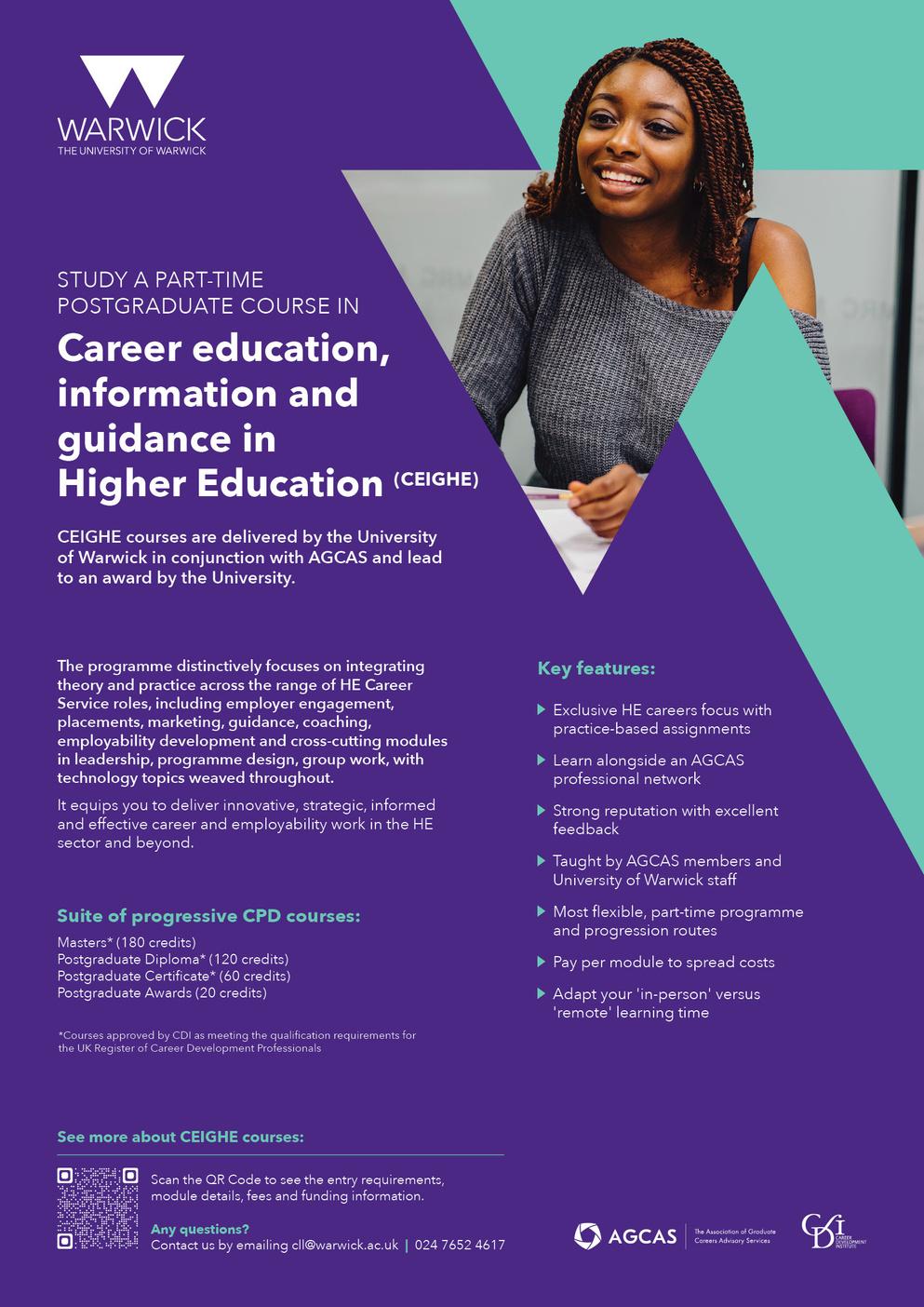



A general election, AI and hybrid working will be hotly debated as the year continues, but what’s likely to have a lasting effect on the graduate labour market? SAM BRESLIN, Student Services Head of Portfolio at Jisc looks ahead.
The looming general election is already dominating headlines, and no doubt the graduate labour market will be a feature of party campaigns Expect lots more talk around international students, the value of a degree and skills shortages, particularly the need for more people in healthcare and education
However, finalists needn’t be too concerned as there will be little effect on those looking for jobs this year For example, there are significant and long-standing shortages in the public sector, but even if there is a big recruitment drive for more teachers, doctors, nurses, police officers and social carers this year, the timing means it will have very little impact on this year ’ s graduates
Artificial intelligence (AI) is a different matter In 2016, page views of AI-related content on the Prospects website were in the hundreds. Last year, this surged to more than 20,000. Students and graduates want to know about the jobs AI may replace as well as how it could be used to make money.
But in 2024, AI will impact recruitment processes more than jobs. In response to candidates using tools such as ChatGPT in applications, we ’ ve already seen a return to face-to-face assessment And expect more changes this year Behind the scenes, employers have been assessing their methods and many will start to roll out new approaches this season
Much of this won’t be obvious to students and graduates going for jobs, but they must tread with care Expect more guidance on how employers want candidates to apply AI with an emphasis on tailored applications, honesty and integrity If you have half an hour to spare and are interested in AI, Jisc members can book a place on our free mini MOOC
Hybrid working islargely done by graduates and despite some employers keen to get staff back in the office, there’s recognition that if you stop hybrid working you will lose staff This way of working isn’t going away so it’s important that students are prepared Employers are mindful that this can be a harder transition for people early on in their careers than more experienced workers Prospects Early Careers Survey found younger workers often felt isolated and struggled to switch off when hybrid working
Apprenticeships and graduate programmes are developed with this in mind. Dedicated support is put in place, including mentors and structured networking opportunities. Institute of Student Employers identified the critical skills necessary to thrive at hybrid work, including communication and self-direction.
For more insight on the year ahead, check out Prospects articles 5 trends in the graduate recruitment landscape for 2024 andWhat’s in store for graduate recruitment?
We have a number of projects and initiatives underway to support careers services in 2024. The regional variations of our flagship What do graduates do? publication are due in the spring. They take a comprehensive view of the graduate labour markets in Scotland, Wales, England and Northern Ireland.
Using data from the Graduate Outcomes survey from the Higher Education Statistics Agency and the Office of National Statistics, they draw a picture of skilled employment and look at some of the occupational and industrial data They also examine the way students and graduates move within the countries, to gain a more nuanced understanding of supply and demand
You can also expect the 2024 issue of our Early Careers Survey in May It looks at the career aspirations, choices and experiences of thousands of students and graduates
Open to all HE and FE Jisc members, the Jisc Careers Research Grant has opened for applications The grant is designed to support career practitioners' research projects, help disseminate findings and improve practices There is up to £5,000 available for each individual project If you are interested in applying,email Ellie Reynolds for guidelines and an application form Applications close on 5 April 2024 and successful applicants will have their research published on Prospects Luminate
Prospects Luminate Prospects

DR JULIA YATES, Associate Professor in Organisational Psychology at City, University of London, shares her latest digest of careers-related research.
Nicky H D Terblanche,Michellevan Heerden&RobinHunt(2024)The influence of an artificial intelligence chatbot coach assistant on the human coach-client working alliance,Coaching: An International Journal of Theory, Research and Practice, DOI:10 1080/17521882 2024 2304792
AI is surely going to have a major impact on our work, but the exact nature of its contribution seems to be, as yet, very unclear This paper that explores the impact of an AI chatbot that operates alongside a human coach caught my eye AI chatbot technology is still a long way from being ready to replace human coaches, but it is developing rapidly The paper reports a small-scale qualitative study that explored the experiences of coaches and clients with chatbot-assisted human coaching, where a chatbot gave the coaching clients some automated support in between real-life coaching sessions The bot offered text conversations that invited the clients to reflect, encouraged them to implement agreed actions, and got them to start planning for their next coaching session The coaches and clients involved in the study both felt that the AI chatbot needed to be flexible, reliable and humane, and felt that the chatbot genuinely made a good contribution to the client’s goal tracking and accountability But where the coaches felt that the AI aspect of the intervention had a negative impact on the relationship between coach and client, the clients reported that it actually made it easier for them to feel psychologically safe in the conversation It makes some sense that a chatbot would be able to offer clients a genuinely non-judgemental environment, and it’s interesting to see the difference in views of coaches and clients in this context.

R.Scandurra,D.Kelly,S.Fusaro,R.Cefalo&K.Hermannson (2023)Do employability programmes in higher education improve skills and labour market outcomes? A systematic review of academic literature,Studies in Higher Education, DOI:10 1080/03075079 2023 2265425
This article reports on a systematic literature review that analysed 87 separate published papers that reported studies evaluating employability programmes in universities (mostly in the UK and Australia) A key finding was that the evidence base isn’t good enough In general, the research that evaluates employability activities is based on small scale case studies from a single institution or within a single course Their limited scale means that it’s hard to be confident about their findings or identify any causal impact on student development or labour market outcomes The authors also noted that studies more often than not focus on work-related learning (such as placements, internships or live projects), rather than embedded employability sessions within the curriculum One interesting theme they noted was that whilst universities offer some excellent initiatives to help students develop their employability skills, students can remain somewhat ‘naïve’ about employability Students are not necessarily aware of the work that they themselves need to do to capitalise on the opportunities offered, and are not always realistic about employers’ expectations The literature also highlighted the significant role of other confounding elements, in particular the impact of social and cultural capital However effective an employability intervention is, students from certain backgrounds still have some advantages Finally, they noted that there are still too many examples of a skills mismatch between the skills students develop at university and those that employers are looking for.
Quirke, M , & Mc Guckin, C (2024) The sound of silence: deconstructing notions of inclusion in career guidance on exploring the experience of deaf people British Journal of Guidance & Counselling, 1-20
This is another systematic literature review that asks whether career guidance is meeting the needs of deaf people The study was conducted in Ireland, and a starting point for the authors was the realisation that there was no word for ‘ career ’ in Irish sign language, and that ‘ career guidance’ was poorly understood by deaf people The authors found just 12 relevant papers to look at, highlighting a clear lack of research in this area They also found that this community was viewed in the literature as ‘disabled’, informed by a medical model of disability which conceptualised people as lesser than their peers and needing to be ‘fixed’
They contrast this approach with the more contemporary social model of disability which focuses on the ways that society disables people Many deaf people do not consider themselves to have a disability, rather that they are part of a linguistic and cultural minority who face particular challenges in participating with services within society
The authors suggest that we perhaps need a cultural shift within our profession to make it more inclusive and they encourage us all to reflect on our own practices and assumptions, asking whether we might be held back by traditional approaches to inclusion and disability
of Career Assessment, 10690727231161380
The findings of this study contain no great shocks, but it’s always useful to remind ourselves of the impact that social mobility continues to have on career outcomes This study looked at the impact of social mobility through the lens of the Psychology of Working Theory
This theory focuses on two psychological factors: work volition (the degree to which you feel that you have some control over your work and career) and career adaptability (your ability to cope with the ever-changing landscape of the modern labour market) that together lead to decent work (having a job where you are reasonably well-treated and rewarded). The study analysed a sample of 500 employed adults in the US and identified four profiles of social mobility: sustained privilege, sustained marginalisation / career barriers; upward mobility and downward mobility
They found that those who had sustained privilege and upward mobility had higher levels of work volition and decent work throughout their careers, compared with those in the other groups Career adaptability, perhaps surprisingly, didn’t appear to differ between groups 10% of the cohort were in the upwardly mobile group and 12% in the downward mobility group, reminding us that social mobility works in both directions
julia.yates.1@city.ac.uk
next issue OF PHOENIX

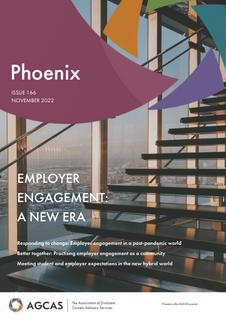


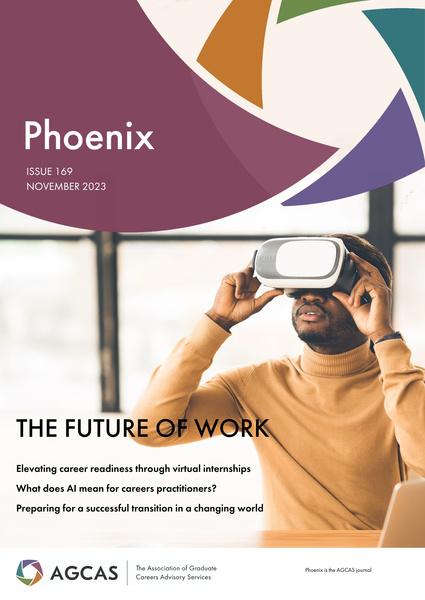
JULY 2024

THIS ISSUE INCLUDES CONTRIBUTIONS FROM AGCAS MEMBERS AT THE FOLLOWING SERVICES:
Arden University
Bath Spa University
Cardiff University
City, University of London
King’s College London
Kingston University
LSE
Manchester Metropolitan University
Royal Holloway University of London
Swansea University
University College London
University of Dundee
University of Edinburgh
University of Exeter
University of Liverpool
University of London
University of Reading
University of Roehampton
University of St Andrews
University of Suffolk
University of the West of England
University of Westminster